The 39th Annual AAAI Conference on Artificial Intelligence
February 25 – March 4, 2025 | Philadelphia, Pennsylvania, USA

AAAI-25 Tutorial and Lab Forum
Sponsored by the Association for the Advancement of Artificial Intelligence
February 25-26, 2025 | Philadelphia Convention Center | Philadelphia, PA USA
Half Day Tutorials
TH02: Building trustworthy ML: The role of label quality and availability
TH03: Fairness in AI/ML via Social Choice
TH04: Foundation Models meet Embodied Agents
TH06: Pre-trained Language Model with Limited Resources
TH07: Concept-based Interpretable Deep Learning
TH08: Evaluating Large Language Models: Challenges and Methods
TH09: Foundation Models for Time Series Analysis: A Tutorial
TH10: Neurosymbolic AI for EGI: Explainable, Grounded, and Instructable Generations
TH12: Advancing Brain-Computer Interfaces with Generative AI for Text, Vision, and Beyond
TH15: Graph Neural Networks: Architectures, Fundamental Properties and Applications
TH16: Machine Learning for Protein Design
TH17: The Lifecycle of Knowledge in Large Language Models: Memorization, Editing, and Beyond
TH18: Thinking with Functors — Category Theory for A(G)I
TH19: User-Driven Capability Assessment of Taskable AI Systems
TH20: AI Data Transparency: The Past, the Present, and Beyond
TH21: Data-driven Decision-making in Public Health and its Real-world Applications
TH22: Decision Intelligence for Two-sided Marketplaces
TH23: Inferential Machine Learning: Towards Human-collaborative Vision and Language Models
TH24: Machine Learning for Solvers
TH25: Model Reuse: Unlocking the Power of Pre-Trained Model Resources
TH26: Symbolic Regression: Towards Interpretability and Automated Scientific Discovery
TH27: Tutorial: Multimodal Artificial Intelligence in Healthcare
Quarter Day Tutorials
TQ01: Advancing Offline Reinforcement Learning: Essential Theories and Techniques for Algorithm Developers
TQ02: Unified Semi-Supervised Learning with Foundation Models
TQ03: Reinforcement Learning with Temporal Logic objectives and constraints
TQ04: Deep Representation Learning for Tabular Data
TQ05: LLMs and Copyright Risks: Benchmarks and Mitigation Approaches
TQ06: Physics-Inspired Geometric Pretraining for Molecule Representation
TQ07: From Tensor Factorizations to Circuits (and Back)
TQ08: KV Cache Compression for Efficient Long Context LLM Inference: Challenges, Trade-Offs, and Opportunities
TQ09: Supervised Algorithmic Fairness in Distribution Shifts
TQ10: Artificial Intelligence Safety: From Reinforcement Learning to Foundation Models
TQ11: Hallucinations in Large Multimodal Models
TQ12: Graph Machine Learning under Distribution Shifts: Adaptation, Generalization and Extension to LLM
TQ13: Curriculum Learning in the Era of Large Language Models
TQ14: Hypergraph Neural Networks: An In-Depth and Step-by-Step Guide
TQ15: The Quest for A Science of Language Models
TQ16: When Deep Learning Meets Polyhedral Theory: A Tutorial
Half Day Lab
Quarter Day Labs
Half Day Tutorials
TH01: Bridging Inverse Reinforcement Learning and Large Language Model Alignment: Toward Safe and Human-Centric AI Systems
More information to come
TH02: Building trustworthy ML: The role of label quality and availability
The goal of this tutorial is two-fold. First, we aim to highlight the challenges of training machine learning (ML) models that must be trustworthy in addition to being accurate, especially in the context of limited and low-quality data. Second, we will demonstrate through various examples how data-efficient and label-efficient learning algorithms—such as active learning, semi-supervised learning, and synthetic data generation—can overcome these challenges to produce trustworthy ML models. These methods are pivotal in improving adversarial robustness, handling distribution shifts, ensuring fairness, and preserving privacy.
While trustworthy and robust machine learning has been widely discussed, recent advancements addressing extreme data scarcity and high label noise have not yet been consolidated into a comprehensive tutorial. This tutorial seeks to fill that gap by providing practitioners with practical algorithms to build trustworthy ML models despite insufficient clean data. Additionally, we will present several open problems that are relevant to both practitioners and researchers, fostering further exploration in this critical area.

Alexandru Țifrea is a Research Scientist at Google DeepMind working on data-efficient techniques for improving alignment in large language models. Prior to that, he received his PhD from ETH Zurich, where he was advised by Prof. Fanny Yang. His research interests revolve around various aspects of trustworthy machine learning (e.g. fairness, distribution shifts) and, more specifically, designing data-efficient methodology for these problems.

Amartya Sanyal is an Assistant Professor of Machine Learning at the Department of Computer Science, University of Copenhagen. He is also an adjunct professor at the Department of Computer Science, Indian Institute of Technology, Kanpur. Prior to that, he did his postdoctoral research at Max Planck Institute for Intelligent Systems, Tubingen and ETH Zurich. He received his PhD at the University of Oxford where he was advised by Prof. Varun Kanade and Prof. Philip H.S. Torr. Amartya’s recent research has primarily focused on robustness and privacy of machine learning algorithms. He is also broadly interested in understanding the impact of inadequate data on trustworthiness of Machine Learning algorithms from both a learning theoretic as well as practical perspective
TH03: Fairness in AI/ML via Social Choice
Today, machine learning and AI are becoming important tools for automating decision-making at an unprecedented rate. This has naturally raised questions regarding whether these decision-making tools treat individuals or groups fairly. While fairness is a nascent subject within the AI/ML literature, it has a long history in economics, specifically in social choice theory (and more recently, in computational social choice), where compelling mathematical notions of fairness, such as envy-freeness and the core,
have played an important role in the design of fair collective decision-making algorithms. The tutorial will spotlight a recent emerging literature on adopting fairness notions from social choice to design provably fair AI/ML tools. The advantages of such notions over fairness notions proposed in the ML literature will be discussed, and applications such as classification,
clustering, federated learning, multi-armed bandits, and rankings will be covered.

Evi Micha is an Assistant Professor of Computer Science at the University of Southern California. She did her postdoc at Harvard University under the supervision of Ariel Procaccia. Before that, she obtained her Ph.D.
from the University of Toronto, advised by Nisarg Shah. She was also an affiliate of the Vector Institute for Artificial Intelligence and a fellow of the Schwartz Reisman Institute for Technology and Society. Her research interests lie at the intersection of computer science and economics, and span areas such as algorithmic fairness and computational social choice. One of her recent papers was selected as exemplary in the applied modeling track of ACM Conference on Economics and Computation. Her research has been awarded the 2024 Best Dissertation Award from the Canadia Artificial Intelligence Association
and the 2024 IFAAMAS Victor Lesser Distinguished Dissertation Award runner-up.

Nisarg Shah is an Associate Professor of Computer Science at the University of Toronto. He is also a Research Lead for Ethics of AI at the Schwartz Reisman Institute for Technology and Society, a Faculty Affiliate of the Vector Institute for Artificial Intelligence, and an Advisor to the nonprofit AIGS Canada. His distinctions include the Computers and Thought Award (IJCAI, 2024), the Kalai Prize (Game Theory Society, 2024), Innovators Under 35 (MIT Technology Review Asia Pacific, 2022), AI’s 10 to Watch (IEEE Intelligent Systems, 2020), and Victor Lesser Distinguished Dissertation Award (IFAAMAS, 2016). His research develops theoretical foundations for algorithmic fairness across a range of domains including voting, resource allocation, matching, and machine learning. He has co-developed the not-for-profit website Spliddit.org, which has helped more than 250,000 people make provably fair decisions in their everyday lives. He earned his PhD in computer science at Carnegie Mellon University and was a postdoctoral fellow at Harvard University.
TH04: Foundation Models meet Embodied Agents
More Information to Come
TH05: Multi-modal Foundation Model for Scientific Discovery: With Applications in Chemistry, Material, and Biology
The rise of foundation models has revolutionized many vision-language tasks, but their application to scientific problems is still in its infancy, presenting vast opportunities for exploration. These models hold immense potential due to their versatile capabilities and the complex, multi-scale nature of real-world scientific challenges. This intersection highlights the transformative possibilities of leveraging foundation models for advancing science. However, significant challenges remain: Where do we draw the boundary for applying foundation models to scientific problems? What scientific tasks are both feasible and equipped with measurable evaluation metrics? How can we effectively utilize the heterogeneous, multi-modal data characteristic of scientific domains? This tutorial will delve into these critical questions, offering in-depth insights and practical guidance.

Shengchao Liu is a postdoctoral fellow at EECS, UC Berkeley, working with Professors Jennifer Chayes and Christian Borgs. He completed his Ph.D. at Mila–Université de Montréal (UdeM) under Jian Tang. Shengchao’s research explores the intersection of artificial intelligence and physics, with applications in chemistry, biology, and materials science. He has published extensively in top venues such as NeurIPS, ICLR, ICML, AISTATS, AAAI, TMLR, Nature Machine Intelligence, Nature Communications, and ACS JCIM, contributing to molecular graph representation, multi-task transfer learning, geometric representation pretraining, AI-augmented molecular dynamics simulation, and AI-generated drug discovery. Shengchao also serves as a reviewer for leading conferences and journals, including NeurIPS, ICLR, ICML, AISTATS, Nature Machine Intelligence, and Nature Communications.
Homepage: https://chao1224.github.io/

Hannan Xu is a postdoc fellow with Prof. Martin A. Cohn at the University of Oxford. He obtained his DPhil degree at the University of Oxford supervised by Prof. Martin A. Cohn and Prof. Neil Brockdorff, FRS. Hannan Xu has many published in the fields of cell biology, structural biology, genetics, and AI for science, including Cell Reports, Nature Communications, NeurIPS, and Genomics. In terms of community serving, Hannan Xu is a co-organizer of Oxford Chinese Science Club.
Homepage: https://scholar.google.com/citations?user=OqKCDxcAAAAJ&hl=en
TH06: Pre-trained Language Model with Limited Resources
More Information to Come
TH07: Concept-based Interpretable Deep Learning
As notoriously opaque deep neural networks (DNNs) become commonplace in powerful Artificial Intelligence (AI) systems, there has been a sharp increase in making DNNs interpretable by construction. Concept representation Learning (CL), a subfield in eXplainable AI (XAI), has emerged as a promising direction for designing high-performing interpretable neural architectures. At their core, CL methods learn an intermediate set of high-level concept representations (e.g., “stripped texture”, “round object”, etc.) from which they can predict a downstream task.
Driven by recent rich representations extracted from large datasets and models, CL has moved from a field constrained by the need for concept annotations to one where practical, powerful concept representations can be exploited without costly annotations. This tutorial aims to capitalise on the surge of interest in CL by equipping AI researchers and engineers with the necessary background to understand the current state of this body of work and build on it for their own research. Specifically, this tutorial will provide an overview of foundational and recent works in (i) supervised concept learning, (ii) unsupervised concept learning, and (iii) concept-based neuro-symbolic reasoning. We will conclude by highlighting several connections between CL and other areas in AI (e.g., disentanglement learning, representation learning, bias mitigation etc) and bringing forth key open questions within the field.
Our material will assume a basic knowledge of ML (e.g., foundations of supervised learning, experimental design, basic probabilistic modelling, etc.), with particular emphasis on a solid Deep Learning foundation (e.g., tensor calculus, neural networks, backpropagation, etc.). Concepts that may require mathematical tools/expertise beyond those one would expect to be shared among the AAAI community will be (re)introduced in our tutorial.

Mateo Espinosa Zarlenga is a PhD student and Gates scholar at the University of Cambridge, UK. His research explores developing interpretable deep learning methods that explain their predictions using human-understandable concept representations. Mateo has published in conferences such as NeurIPS, ICML, ECCV, and AAAI and holds an MPhil from the University of Cambridge and an MEng and BA from Cornell University.

Pietro Barbiero is a Swiss Postdoctoral Fellow at IBM Research (Switzerland) and a research affiliate at the University of Cambridge (UK). His work focuses on interpretable artificial intelligence and deep learning, with the aim to address the accuracy-interpretability trade-off. Pietro has published in conferences such as NeurIPS, ICML, ICLR, and AAAI and holds an MEng in mathematics and a BEng in computer science from Politecnico di Torino.
TH08: Evaluating Large Language Models: Challenges and Methods
The proliferation of large language models (LLMs) has raised increasing concerns about their security and risks, which are mainly due to a lack of understanding
of their capabilities and limitations. In this tutorial, our aim is to fill this gap by presenting a holistic overview of LLM evaluation. First, we discuss the recent advance of LLMs evaluation from the perspectives of what, where, and how to evaluate. Then, we present several key challenges in LLM evaluation such as data contamination and fixed complexity. Based on these challenges, we introduce how to overcome these challenges. Afterwards, we show how to evaluate LLMs in different downstream tasks, including natural and social sciences, followed by some popular code library and benchmarks. We hope that academic and industrial researchers continue to work to make LLMs more secure, responsible, and accurate.
All materials will be available at https://llm-understand.github.io/.

Kaijie Zhu is a Ph.D. student at University of California, Santa Barbara, advised by Prof. William Wang and Prof. Wenbo Guo. He obtained his Master’s degree from Institute of Automation, Chinese Academy of Sciences in 2024. His research interests include trustworthy AI and evaluation of LMMs. He has published 7 papers in top conferences and journals, such as ICCV’23, ICLR’24, ICML’24, EMNLP’24, JMLR, etc.
Homepage: Kaijie Zhu

Jindong Wang (the main contact) is an assistant professor at William & Mary and a Senior Researcher at Microsoft Research Asia. He
obtained his Ph.D from Chinese Academy of Sciences in 2019. His main research interest is transfer learning, robust machine learning, and large language models. He published over 60 papers in top machine learning and data mining venues, receiving more than 15000 citations. He served as the publicity chair of IJCAI’19 and Area Chair of ICLR, NeurIPS, and KDD. He gave tutorials at IJCAI’22, KDD’23, WSDM’23, and AAAI’24. Homepage: http://jd92.wang.

Linyi Yang is a Research Assistant Professor at Westlake University. Before that, he obtained his Ph.D. from University College Dublin
in 2021. He has established an academic reputation in causality and advanced Natural Language Processing (NLP) technologies. His research interest is causality, data-centric AI and trustworthy AI. He served as an Area Chair at the EMNLP’22 conference. His work was awarded the best paper candidate at CCIS’18. Homepage: https://yanglinyi.github.io/.

Yue Feng is an assistant professor at the University of Birmingham. She got her Ph.D. from University College London. Her research interests lie in natural language processing, large language models, and information retrieval. She won the Alexa Prize TaskBot Challenge in 2021 and
was awarded the Baidu Excellent Research Intern Star in 2020. She served as an Area Chair at the NLPCC’24 conference.
Homepage: https://fengyue-leah.github.io/index.html.

Yue Zhang is a full professor at Westlake University. He has more than 18 years research experience in natural language processing,
published two books, 40+ top journal articles and 250+ top conference papers, a total citation of 16000 and H-index of 68. He served as program committee co-chair of EMNLP 2022 and CCL 2020, senior program members for ACL, NAACL, EMNLP, COLING, IJCAI, among other top conferences. He is the action editor for Transactions for ACL (TACL), associate editor for IEEE/ACM Transactions on Audio, Speech and Language processing (TASLP), ACM Transactions on Asian and Low-Resource Languages (TALLIP), IEEE Transactions on Big Data (TBD) and
Computer, Speech and Language (CSL). He has given 5 tutorials at ACL, NAACL and EMNLP, serving as tutorial co-chair for ACL 2020. He serves as the associate dean for School of Engineering. Prof. Zhang is a highly respected expert in the area of NLP.
Homepage: https://frcchang.github.io/.
TH09: Foundation Models for Time Series Analysis: A Tutorial
In recent years, foundation models (FMs) have significantly enhanced various tasks and transformed model design in time series analysis. In this manuscript, we propose a comprehensive half-day tutorial at AAAI’25, tailored for professionals, researchers, and practitioners interested in utilizing FMs for time series analysis. This tutorial offers insights into FM theory, implementation, and practical applications, including principles, pre-processing techniques, and modeling strategies. Attendees will also learn best practices for integrating FMs into workflows and exploring applications in diverse fields, such as finance, healthcare, and transportation. Sponsored by Squirrel AI, the tutorial promises enhanced understanding, practical skills acquisition, and networking opportunities, bridging theory with practice.

Yuxuan Liang is an assistant professor at Hong Kong University of Science and Technology (Guangzhou), working on the innovation of spatio-temporal data mining and time series analysis. He has published 100+ papers in prestigious venues (e.g., TPAMI, AIJ, TKDE, KDD, NeurIPS) with 5,600+ citations on Google Scholar (h-index: 34). He co-organized a series of workshops on AI for Time Series (AI4TS) and Spatio Temporal Data (Urbcomp) at IJCAI and KDD.

Qingsong Wen is the Head of AI \& Chief Scientist at Squirrel AI. His research focuses on AI for Time Series \& AI for Education. He has published over 100 top-ranked AI conference and journal papers, had multiple Oral/Spotlight Papers at NeurIPS/ICML/ICLR, had multiple Most Influential Papers at IJCAI, and received multiple IAAI Deployed Application Awards at AAAI. Currently, he serves as Co-Chair of Workshop on AI for Time Series at AAAI, IJCAI, KDD, ICDM, SDM, etc. He also serves as Associate Editor for Neurocomputing, Guest Editor for Applied Energy and IEEE Internet of Things Journal, and Area Chair for NeurIPS, KDD, ICASSP, etc.

Dongjin Song is an assistant professor at the School of Computing, University of Connecticut. His research interests include machine learning, deep learning, and related applications for time series data analysis. He received the prestigious NSF Career Award in 2024 and the Frontiers of Science Award (FSA) in 2024. He has served as Associate Editor for Pattern Recognition, Neurocomputing, and Organization Committee/Area Chair/Senior PC for AAAI, IJCAI, ICDM, IEEE Big Data, PAKDD, and CIKM. He also co-organized a series of workshops on AI for Time Series (AI4TS) at AAAI, IJCAI, KDD, etc.

Shirui Pan is a Professor and an ARC Future Fellow at the School of ICT, Griffith University, Australia. His research interests include data
mining and machine learning, specializing in time series analysis and graphing neural networks. His research has attracted over 25,000 citations. His research received the 2024 CIS IEEE TNNLS Outstanding Paper Award and the 2020 IEEE ICDM Best Student Paper Award.

Jiaxi Hu is a Ph.D. student at the Hong Kong University of Science and Technology (Guangzhou). His main research interests include time series analysis, state space models, and physics-guided machine learning. He has served as a reviewer of major AI/ML/DM conferences.
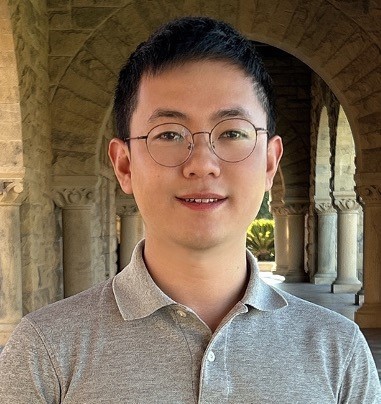
Ming Jin is an Assistant Professor at the School of ICT, Griffith University, Australia. He has published over twenty peer-reviewed papers in
top-ranked journals and conferences, including TPAMI, NeurIPS, ICLR, ICML, etc. He serves as an Associate Editor for Journal of Neurocomputing and regularly contributes as Area Chair/PC member for major AI conferences. His research interests include time series analysis, graph neural networks, and multi-modal learning.

Yushan Jiang is a Ph.D. student at University of Connecticut. His research interests include multivariate time series analysis through generalized deep learning paradigms (continual learning and federated learning).
TH10: Neurosymbolic AI for EGI: Explainable, Grounded, and Instructable Generations
More Information to Come
TH11: (Really) Using Counterfactuals to Explain AI Systems: Fundamentals, Methods, & User Studies for XAI
In recent years, counterfactual explanations have emerged as a key technique in eXplainable AI (XAI), allowing AI systems to provide users with understandable and actionable insights by proposing minimal changes to inputs that would yield a different outcome. This half-day tutorial at AAAI-25 introduces participants to the fundamentals and practical applications of counterfactual explanations, exploring how they can improve transparency and meet regulatory standards, all while fostering user trust. Aligned with AAAI-25’s “Collaborative Bridge Theme”, this session spans disciplines, combining perspectives from machine learning, psychology, and human-centered design.
This tutorial is designed for machine learning researchers, data scientists, and AI practitioners who may be new to XAI concepts or lack experience conducting user studies. We start by unpacking the theoretical foundation of counterfactual reasoning, covering its roots in philosophy and psychology to reveal why this method resonates so strongly with human decision-making processes. Participants will learn how counterfactuals function as a bridge between complex AI models and end-users, enabling a form of explanation that is intuitive, actionable, and human-centered.
Moving from theory to practice, we will provide hands-on experience with popular Python tools, including the DiCE library, for generating and visualizing diverse counterfactual explanations. Attendees will learn to apply these tools to AI models, exploring different techniques and distance metrics for creating explanations that balance accuracy and feasibility.
This session also emphasizes the importance of evaluating XAI with robust user studies: we will guide participants through essential aspects of designing, running, and analyzing user studies tailored to counterfactual explanations. This component aims to equip attendees with the skills to conduct human-centered evaluations, addressing common challenges in user research, such as sample size determination, data analysis, and controlling for bias.
Throughout the tutorial, participants will benefit from interactive discussions and live walkthroughs, concluding with a Q&A session to address specific questions and explore emerging trends in XAI research. By the end, attendees will be prepared to implement counterfactual explanations effectively in their own AI projects and to design user studies that assess the impact of these explanations on transparency, usability, and user trust. This tutorial is ideal for those looking to advance their technical and research skills in XAI, enabling them to design AI systems that are not only powerful but also transparent and accountable to end-users.

Andre Artelt is a post-doctoral researcher interested in Trustworthy AI and AI for Critical Infrastructure. He mainly focuses on eXplainable AI – in particular on contrasting explanations. Besides fundamental research, he also works on applications of XAI, such as to water distribution networks, transportation, and decision support systems for business owners.

Ulrike Kuhl As a cognitive scientist by training, Ulrike’s post-doctoral research promotes a human-centric approach to AI. With her work, she seeks to provide empirical evidence to inform the design, development, and deployment of eXplainable AI systems that effectively meet user’s needs, preferences, and evoke user’s trust.

Mark T. Keane Mark is Chair of Computer Science at University College Dublin. His work is split between Cognitive and Computer Science, His cognitive science research has been in analogy, metaphor, conceptual combination and similarity. His computer science research has been in natural language processing, machine learning, case-based reasoning, text analytics and, more recently, explainable artificial intelligence.
TH12: Advancing Brain-Computer Interfaces with Generative AI for Text, Vision, and Beyond
In this half day tutorial, we explore the transformative intersection of Brain-Computer Interface (BCI) neurotechnology and Generative AI, focusing on how brain activity can be decoded into coherent language, imagery, and actions through advanced deep learning techniques. By integrating brain signal data such as EEG, MEG, and fMRI with multimodal AI models like Large Language Models (LLMs) and Generative Adversarial Networks (GANs), participants will gain insights into cutting-edge methods for brainwave pattern recognition and data fusion. Targeted at researchers, practitioners, and students, this session offers a deep dive into the applications of BCI-driven AI in fields such as accessibility, augmented and virtual reality, and cognitive psychology, highlighting both the progress and challenges in this rapidly evolving area.
Objectives
- Introduce key brain-computer interface concepts and their applications in generative AI.
- Demonstrate the integration of neurotechnology and multimodal AI models for text,
image, and speech generation. - Discuss current trends and research challenges in applying BCI data for AI-driven
synthesis across multiple modalities.
Learning Outcomes
By the end of this tutorial, participants will be able to:
- Understand core BCI signals and their applications in generative AI for text, vision, and multimodal synthesis.
- Identify and evaluate pattern recognition techniques for translating brain signals into language and images.
- Explore advanced AI models, including LLMs and GANs, in the context of BCI applications.
- Discuss real-world applications and ethical considerations related to AI-driven neurotechnology.
- Gain familiarity with foundational frameworks and methodologies for BCI and multimodal AI research.
For more information and to download the syllabus and materials, please visit https://sites.google.com/view/aaai2025bci4genai/home

Shreya Shukla is a Research Assistant at the University of Texas at Austin, working under the supervision of Prof. Abhijit Mishra. She holds a Master’s degree in Information Studies from UT Austin, specializing in applied machine learning, deep learning, and scientific computing. Her primary research interests include deep learning and generative AI, with a particular focus on cognitive understanding and generating text from brain signals. She has experience in predictive modeling and has also served as a Research Assistant at the Texas Advanced Computing Center, where she worked on writing kernels for GPU architectures. Shreya’s professional background includes five years as a software developer, where she developed end-to-end software solutions for companies like Rackspace Technology and Wipro.

Dr. Abhijit Mishra is an Assistant Professor of Practice at the University of Texas at Austin, specializing in Machine Learning for Natural Language Processing (NLP). His research focuses on cognitively inspired NLP, language generation, and large language models. He has delivered tutorials at major conferences, including the ACL 2019 on storytelling from structured data and knowledge graphs and the LREC-COLING 2024 on addressing bias and hallucinations in large language models. Before joining academia, Dr. Mishra was a research scientist at Apple and IBM, where he contributed to projects like Siri and IBM Watson. He holds a Ph.D. from IIT Bombay, where he researched sentiment analysis using gaze data and multilingual dialogue systems. His work has been presented at prestigious conferences such as ACL, AAAI, and EMNLP.

Dr. Jacek Gwizdka is an Associate Professor at the School of Information, University of Texas at Austin. A cognitive psychologist and human factors engineer, Dr. Gwizdka has over 25 years of experience in human-information interaction research. His expertise lies in interactive information retrieval, where he applies experimental cognitive psychology and neurophysiology to enhance information search experiences. His research interests include inferring cognitive phenomena from neurophysiological signals and developing predictive models. He utilizes techniques such as eye-tracking, pupillometry, and neurophysiological signal analysis to study cognitive load, reading behaviors, situation awareness, and information relevance. Dr. Gwizdka earned his Ph.D. from the University of Toronto and has published over 140 papers. He has also presented tutorials at top ACM conferences, including CHI 2006, SIGIR 2006, and CHI 2007.

Jose Torres is an undergraduate student at the University of Texas at Austin, pursuing a Bachelor’s degree in Informatics with a concentration in Human-Centered Data Science and a minor in Quantum Information Science. He has co-authored two papers with the iSchool Inclusion Institute and continues his research under the guidance of Prof. Abhijit Mishra. Jose’s research interests include natural language processing, generative AI, and explainable AI.

Dr. Shounak Roychowdhury is an Associate Professor of Practice at the University of Texas at Austin, with extensive expertise in computational intelligence. His research areas include pattern recognition, machine learning, computer vision, non-linear dynamics, and software engineering. With over two decades of experience in database technology, Dr. Roychowdhury has held prominent roles at Oracle, Hewlett Packard Enterprise, and Dell. He has made notable contributions to fuzzy systems research, with publications in IEEE Transactions on Fuzzy Systems. His recent work explores predictive models for Alzheimer’s disease using conditional generative adversarial networks and innovative applications of color spaces in pattern recognition. Dr. Roychowdhury is a member of ACM.
TH13: AI for Science in the Era of Large Language Models
Description: The capabilities of AI in the realm of science span a wide spectrum, from the atomic level, where it solves partial differential equations for quantum systems, to the molecular level, predicting chemical or protein structures, and even extending to societal predictions like infectious disease outbreaks. Recent advancements in large language models (LLMs), exemplified by models like ChatGPT, have showcased significant prowess in tasks involving natural language, such as translating languages, constructing chatbots, and answering questions. When we consider scientific data, we notice a resemblance to natural language in terms of sequences – scientific literature and health records presented as text, bio-omics data arranged in sequences, or sensor data like brain signals. The question arises: Can we harness the potential of these recent LLMs to drive scientific progress? In this tutorial, we will explore the application of large language models to three crucial categories of scientific data: 1) textual data, 2) biomedical sequences, and 3) brain signals. Furthermore, we will delve into LLMs’ challenges in scientific research, including ensuring trustworthiness, achieving personalization, and adapting to multi-modal data representation. Our tutorial is designed as self-contained, so no specific background knowledge is assumed of the audience. However, it would be beneficial for the audience to know about the basics of deep learning technologies and pre-trained language models (e.g., Transformer, BERT, GPT, and T5) before attending this tutorial. More details can be found on our tutorial website: https://xuanwang91.github.io/2025-02-25-aaai25-tutorial.
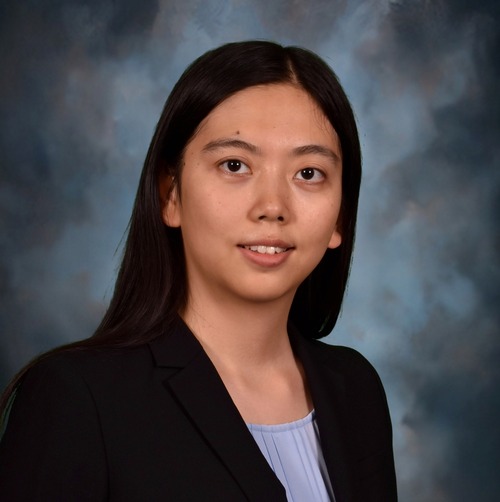
Xuan Wang is an Assistant Professor in the Department of Computer Science at Virginia Tech. Her research focuses on natural language
processing and data mining, emphasizing applications to sciences and healthcare domains. She has delivered tutorials in WWW’22, KDD’22, and EMNLP’24.
TH14: Causal Representation Learning
Causal representation learning (CRL) has emerged as a cutting-edge field that merges the strengths of statistical inference, machine learning, and causal inference. CRL’s objective is to learn a low-dimensional latent representation of high-dimensional data as well as the rich structures that model the interactions among the variables in the latent representation. Achieving these enables learning (i) the ground-truth generative model underlying the observed data; and (ii) the cause-effective interactions among the variables of the generative model beyond their statistical associations (e.g., correlation). This enables reasoning about the generative factors and their influence on the data. CRL has applications in a wide range of technological (e.g., robotics), biological (e.g., genomics), and social domain.
In this tutorial, we will provide a thorough overview of CRL, its foundations and motivations, different approaches to CRL, and the recent theoretical advances. Specifically, we will begin by introducing the foundational concepts and motivations for problems that simultaneously involve representation learning and causal inference. Following a brief history of CRL, we will describe its primary objectives and the theoretical challenges. We will then review the key approaches developed to address these challenges, including CRL with multi-view observations, CRL with interventions on latent variables, and CRL applied to temporal data. Additionally, we will highlight real-world application opportunities, discuss the challenges in scaling CRL to practical use cases, and discuss open questions for CRL related to both theoretical and empirical viewpoints.
This tutorial targets a broad audience, including researchers interested in causality, representation learning, out-of-domain robustness, and experimental design. Attendees will gain an understanding of the key objectives of CRL, the theoretical and empirical challenges it faces, and the different existing approaches to performing CRL, and an outlook of the expansion trajectory of the field.

Burak Varıcı is a postdoctoral researcher in the Machine Learning Department at Carnegie Mellon University. Dr. Varıcı received his Ph.D. in Electrical Engineering from Rensselaer Polytechnic Institute in 2023. His research focuses on the theoretical foundations of the intersection of causality and machine learning, focusing on leveraging shared causal mechanisms via interventions. This includes causal representation learning and in general, identifiable representation learning. He is the recipient of several awards and fellowships, including Rensselaer’s Belsky Award for Computational Sciences and Engineering in 2021, and the IBM-AIRC PhD Fellowship (2020-2024) to support his doctoral research.

Ali Tajer received the M.A degree in Statistics and the Ph.D. degree in Electrical Engineering from Columbia University. During 2010-2012 he was with Princeton University as a Postdoctoral Research Associate. He is currently an Associate Professor of Electrical, Computer, and Systems Engineering at Rensselaer Polytechnic Institute. His research interests include mathematical statistics, machine learning, and information theory. He is currently serving as an Associate Editor for the IEEE Transactions on Information Theory and a Senior Area Editor for the IEEE Transactions on Signal Processing. He has received the Jury Award (Columbia University), School of Engineering Research Excellence Award (Rensselaer), School of Engineering Classroom Excellence Award (Rensselaer), James M. Tien ’66 Early Career Award for Faculty (Rensselaer), a CAREER award from the U.S. National Science Foundation in 2016 and a U.S. Air Force Fellowship Award in 2019.

Karthikeyan Shanmugam is currently a Research Scientist at Google DeepMind India (Bengaluru) in the Machine Learning and Optimization Team since April 2022. Previously, he was a Research Staff Member and a Herman Goldstine Postdoctoral Fellow at IBM Research, NY in the period 2016-2022. He obtained his Ph.D. from UT Austin in 2016, M.S. degree from USC, B. Tech and M. Tech Degrees from IIT Madras in 2010, all in Electrical Engineering. He is a recipient of the IBM Corporate Technical Award in 2021 for his work on Trustworthy AI. He regularly serves on the (Senior) Program Committee of AI conferences such an NeurIPS, ICML and AAAI. His primary research focus is Machine Learning and Information Theory. Specifically, his research interests are in causal inference, online learning and foundation models.

Emre Acartürk is a Ph.D. student in Electrical, Computer, and Systems Engineering at Rensselaer Polytechnic Institute since August 2022. He received his B.Sc. degree in Electrical & Electronics Engineering from Bilkent University, Turkey, in 2022. His research interests include causality, machine learning and optimization.
TH15: Graph Neural Networks: Architectures, Fundamental Properties and Applications
GNNs have emerged as a crucial tool for machine learning on graphs and have been a rapidly growing topic in both fundamental research and industry applications. Indeed, as much of the 2010s were the time of convolutional neural networks (CNNs) applied to learning from images and time series data, the 2020s are shaping up to be the time of GNNs for learning on graphs in addition to attention-based architectures such as graph transformers. This is the right time to learn about GNNs and their potential power in processing large-scale graph-structured data over an extensive array of applications. With the emergence of large-scale systems, deploying scalable solutions with GNNs is a natural choice, along with the need to understand their fundamental properties, which can guide the practical design of GNNs.
In this tutorial, we present GNNs as generalizations of CNNs, which hinge upon generalizing convolutions in time and space to convolutions on graph data. We will emphasize how the use of graph convolutions enables scalability to high-dimensional and non-Euclidean problems. We also explore four fundamental properties of GNNs: equivariance to permutations, stability to deformations, transferability across scales, and generalization to unseen data. To illustrate the excellent performance of GNNs, we will showcase their use in diverse applications, spanning recommendation systems, communication networks, bioinformatics, autonomous multi-agent systems, and data manifolds. Ultimately, this tutorial will provide a broad overview of convolutional information processing on graphs and enable participants to tackle a variety of graph machine learning problems.
This tutorial is of interest to a broad audience and has a low entry barrier. The former is true because it introduces the theory and practice of GNNs. The latter is true because it builds GNNs from basic data processing principles and is thus accessible to any researcher with knowledge of convolutions in spatial and spectral domains. Researchers will finish this tutorial with experience in formulating and training models with GNNs in practical problems, along with a good understanding of their fundamental properties.
The detailed subtopics, tutorial outline are present at https://gnn.seas.upenn.edu/aaai-2025/.

Navid NaderiAlizadeh is an Assistant Research Professor in the Department of Biostatistics and Bioinformatics at Duke University. His research interests span the foundations of machine learning, artificial intelligence, and signal processing and their applications in developing novel methods for analyzing biological data. Navid was a 2011 Irwin and Joan Jacobs Scholar, a 2015–16 Ming Hsieh Institute Ph.D. Scholar, and a Shannon Centennial Student Competition finalist at Nokia Bell Labs in 2016.

Alejandro Ribeiro is a Professor of Electrical and Systems Engineering at University of Pennsylvania. His research involves wireless autonomous networks, machine learning on network data, and distributed collaborative learning. Papers coauthored by Dr. Ribeiro received awards from the IEEE Signal Processing Society (’22, ’20), the IEEE Brain Initiative (’22), Cambridge University (’21), EUSIPCO (’21, ’19), ICASSP (’20, ’06, ’05), CDC (’17), and ACC (’13). He received the Lindback (’17) and S. Reid Warren, Jr (’12) teaching awards. He has been named an Intel Outstanding Researcher (’19), a Penn Fellow (’15), and a Fulbright scholar (’03).

Luana Ruiz is an Assistant Professor with the Department of Applied Mathematics and Statistics and the MINDS and DSAI Institutes at Johns Hopkins University. Luana’s work focuses on large-scale graph information processing and graph neural network architectures. She was awarded an Eiffel Excellence scholarship(‘13-’15), nominated as an iREDEFINE fellow(‘19), an MIT EECS Rising Star (‘21), a Simons Research Fellow(‘22), and a METEOR fellow(‘23), and received best student paper awards at EUSIPCO (‘21, ‘19).
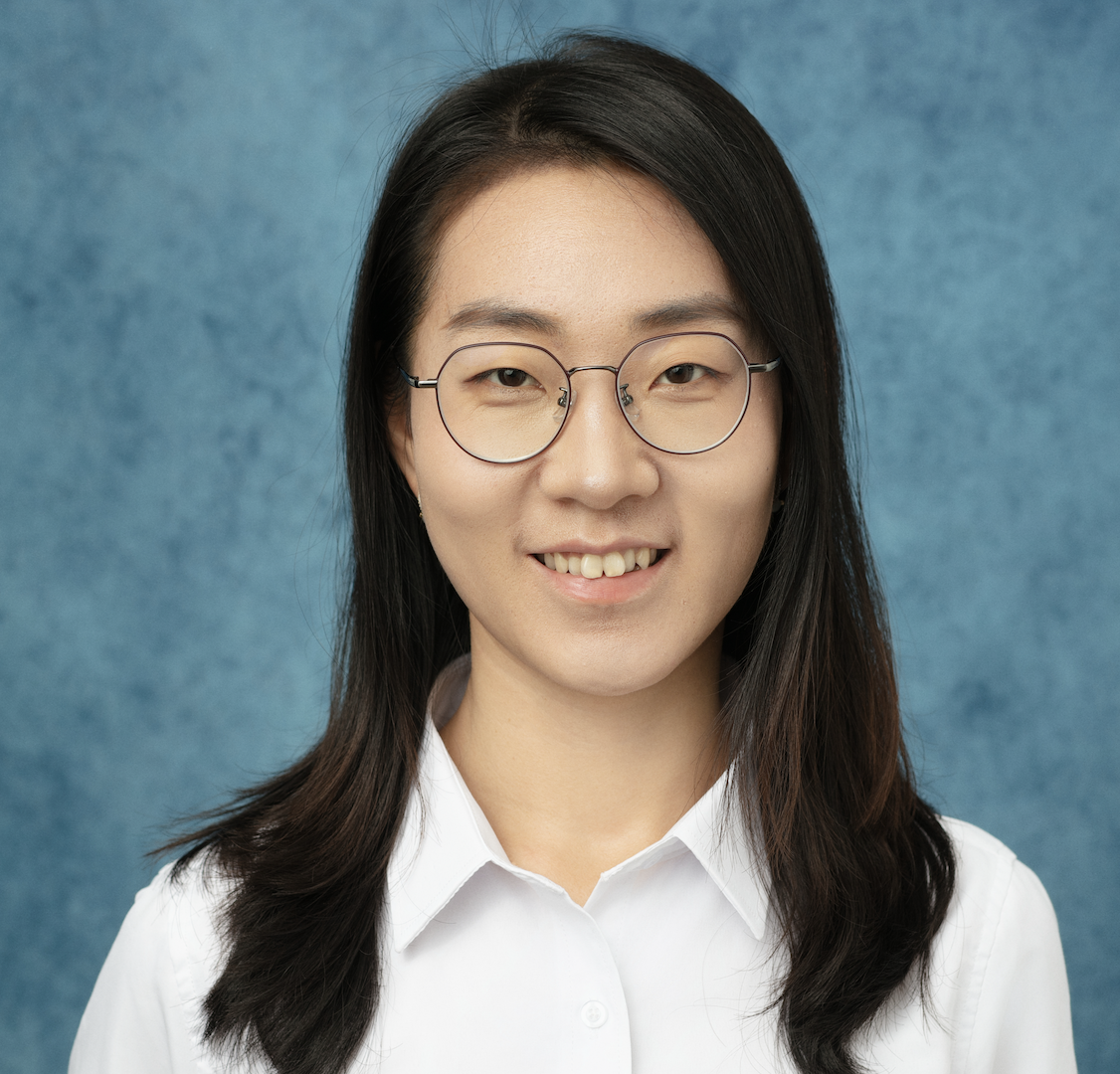
Zhiyang Wang is a final-year Ph.D. candidate at the University of Pennsylvania in the Electrical and Systems Engineering Department, advised by Prof. Alejandro Ribeiro. Her research interests include graph signal processing, geometric deep learning, manifold neural networks, and wireless communications. She received the best student paper award at EUSIPCO (‘21). She was nominated as a Rising Star in EECS (‘23), Signal Processing (‘23), and Data Science (‘24).
TH16: Machine Learning for Protein Design
Proteins are fundamental to biological processes, and AI techniques are revolutionizing their study, with applications ranging from drug discovery to enzyme design. A key challenge in protein science is to predict and design protein sequences and structures, and to model their dynamics. In this tutorial, we will present a comprehensive overview of AI approaches applied to protein sequence, structure, and function prediction and design. Topics include sequence-based and structure-based protein representation learning, protein folding and dynamics prediction, and protein design with generative models. Participants are expected to have a foundational understanding of machine learning methods (e.g., neural networks, generative models). No prior experience with computational biology or bioinformatics is necessary, as the tutorial will include a comprehensive introduction to the field.
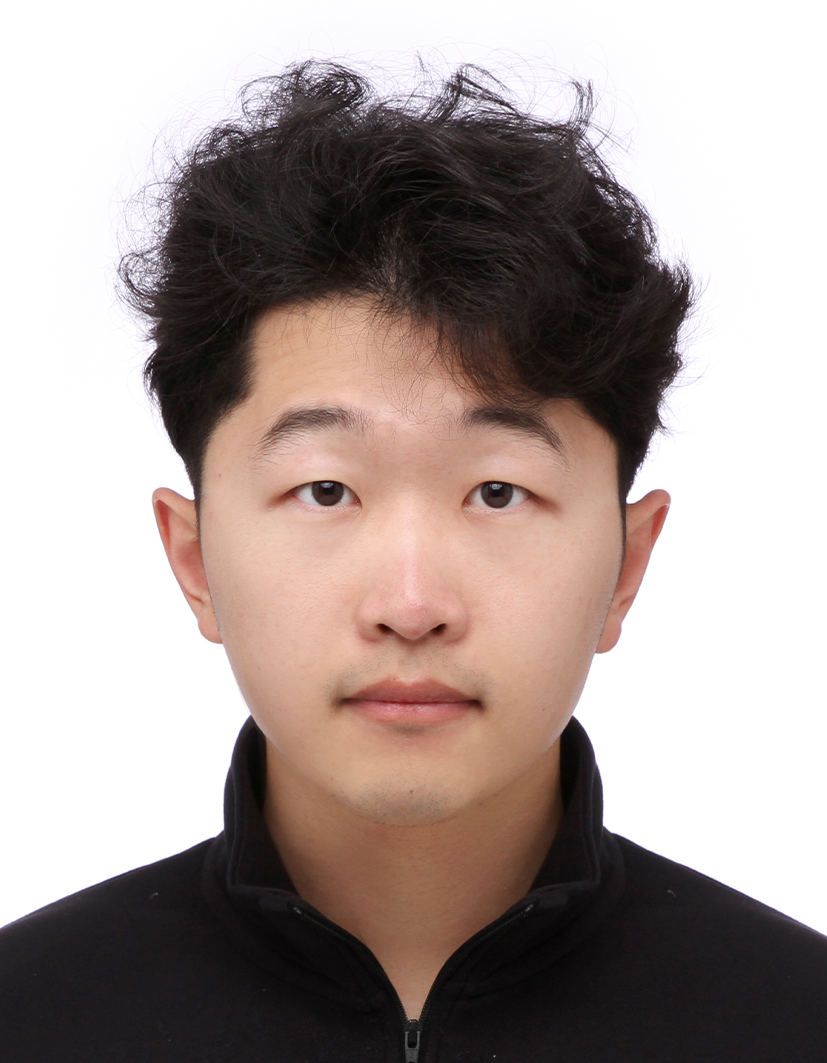
Zuobai Zhang is a 4th-year Ph.D. student at Mila – Québec AI Institute, advised by Prof. Jian Tang. His research interests include machine learning for protein science. He has general interest in AI4Science and machine learning techniques.

Jiarui Lu is a 3rd-year Ph.D. student at Mila – Québec AI Institute, supervised by Prof. Jian Tang. He obtained B.Sc. in chemistry and mathematics from Shanghai Jiao Tong University. His research focuses on generative learning on biomolecular structure data such as proteins.

Divya Nori is a 4th-year undergraduate at MIT and student researcher at the Broad Institute, advised by Prof. Wengong Jin and Prof. Caroline Uhler. Previously, she interned on the ML teams at D.E. Shaw Research, Absci, and Microsoft Research. Her research focuses on developing AI methods for biomolecular design.

Wengong Jin is an assistant professor at Khoury College of Computer Sciences at Northeastern University. His research focuses on geometric and generative AI models for drug discovery. His work has been published in journals including ICML, NeurIPS, ICLR, Nature, Science, Cell, and PNAS, and covered by such outlets as the Guardian, BBC News, and CBS Boston.

Jian Tang is an associate professor at Mila – Québec AI Institute, a Canada CIFAR AI Research Chair and the founder and CEO of BioGeometry. His research interests are deep generative models, graph machine learning and their applications to drug discovery. He has done many pioneering work on AI for drug discovery, including the first open-source machine learning framework for drug discovery, TorchDrug and TorchProtein.
TH17: The Lifecycle of Knowledge in Large Language Models: Memorization, Editing, and Beyond
More Information to Come
TH18: Thinking with Functors — Category Theory for A(G)I
This tutorial introduces a new theoretical foundation for A(G)I based on the mathematics of categories and functors. Much of the existing formalism for AI and ML is based on traditional set-theoretic mathematics from the 18th and 19th century (calculus, graph theory, probability). Over the past 70 years, mathematicians have developed a unified formalism based on far reaching abstractions that have shown deep connections between many areas of mathematics. These formalisms are already providing algorithmic insight in AI and ML. One of the most efficient and powerful data visualization methods is based on category theory.
Thinking of machine learning using functors has also provided new conceptual tools to overcome an impossibility theorem in clustering, and powerful representations for causal inference and deep learning. This tutorial will cover the core ideas in category theory for AI researchers new to this topic, including the structure of categories, functors and their ubiquitous presence in all of AI and ML, powerful theorems like the Yoneda Lemma and Kan Extensions, the construction of colimits and limits in reasoning about iterative processes, adjoint functors and their connection tomonad algebras, the generalization of set theory into topos theory, and Yoneda’s calculus of (co)ends. The tutorial will give practical examples of each of these theoretical ideas in many areas of AI, including AGI, causal inference, dimensionality reduction and manifold learning, reinforcement learning and planning, and generative AI. By understanding the basics of category theory, tutorial attendees will equip themselves with powerful new mathematical tools that will help pave the next generation of foundational advances in the field. As the technology underlying AI and ML moves from classical computing to quantum computing, the importance of categorical thinking will only grow, and the tutorial will cover how to model quantum computing for AI using diagrams in monoidal categories. Background reading material will be made available prior to the tutorial at my UMass
webpage: https://people.cs.umass.edu/~mahadeva/Site/About_Me.html

Sridhar Mahadevan was elected Fellow of AAAI in 2014 for “significant contributions to the field of machine learning including pioneering work in robot learning and representation discovery”. He has published widely in the field of AI and ML over the past three decades, and has given invited keynote lectures in many countries. He has also given previous tutorials at AAAI, IJCAI, ICML, ECML, and AAMAS on a wide range of topics. He is a Research Professor at the College of Information and Computer Sciences at the University of Massachusetts, Amherst, and a Director at Adobe Research in San Jose, California.
TH19: User-Driven Capability Assessment of Taskable AI Systems
This tutorial will cover approaches for assessing the safety and functionality of AI systems designed to learn continuously and complete tasks in a user’s environment. AI systems are increasingly interacting with non-expert users, leading to growing calls for better safety assessment and regulation by users, governments, and industry. While recent AI developments have made it easier to develop taskable AI systems, ensuring their safety presents unique challenges. Unlike traditional engineered systems where limited functionality yields safety, taskable AI systems are designed to adapt to user-specific tasks and environments, invalidating conventional approaches to safety assurance. These challenges cannot be addressed by simply extending existing verification and validation paradigms.
This tutorial is essential for researchers working on AI safety and will interest those in robotics, planning, and human-robot interaction. Participants will learn about foundational topics like active and passive action-model learning and assessment of black-box AI systems in stationary and adaptive settings. The tutorial covers novel capability discovery and assessment techniques, with applications in real-world scenarios like household robotics, digital assistants, autonomous vehicles, and healthcare systems. Specifically, we address three main areas: (i) why conventional verification and validation approaches fall short, (ii) specific requirements and promising research directions for formal assessment of AI systems, and (iii) solutions developed for restricted settings.
By exploring these challenges and research directions, the tutorial will provide both junior and senior researchers with the foundation to contribute to this area of continual assessment of AI systems that can learn, plan and act; emphasizing the interdisciplinary nature of AI assessment that combines formal methods, human-AI interaction, and AI safety.
For more details and updates, please refer to https://aair-lab.github.io/aia2025-tutorial

Pulkit Verma is a Postdoctoral Associate at CSAIL, Massachusetts Institute of Technology. He received his PhD from Arizona State University and master’s from IIT Guwahati. His research focuses on AI safety and assessment, model learning for sequential decision-making systems, AI interpretability, human-AI collaboration, and automated planning.

Siddharth Srivastava is an Associate Professor at Arizona State University. Prior to that, he was a postdoc at UC Berkeley. He received his PhD from UMass Amherst. His research interests include generalizable learning for sequential decision making, taskable robotics, and safety and capability assessment of AI systems.
TH20: AI Data Transparency: The Past, the Present, and Beyond
Data transparency has become a focal point for work on AI innovation, reproducibility, security, safety, copyright, and other societal impacts associated with AI systems. Data documentation standards and audit, policy and technical interventions have all emerged around this shared objective.
This half day tutorial offers participants an overview of the landscape of AI data transparency – meaning transparency about data and data practices within the AI lifecycle. Firstly, we share the current state of practice in AI data transparency. We examine where transparency is most lacking, and what interventions, from audits to techniques, have been introduced to remedy this from both academia and industry. This exploration will span studies across modalities, and the wider AI supply chain, from crawling to training. Secondly, we will outline and discuss the cutting edge of approaches in documentation of AI data practices. This will include a hands-on introduction to Croissant, a machine-readable standard for machine learning datasets introduced by ML Commons, currently taken up across academic and industry contexts for supporting findability as well as informed and responsible use of datasets. Thirdly, we will discuss the demand for documentation approaches to address diverse user needs, and research addressing the tension between this demand and the need for standardization. In this section, we will hold a brief demo tailoring AI data documentation to specific users, and share an introduction to the Factsheets methodology for creating user-centric documentation. In all, we aim to offer participants an understanding of both the present status and significance of current data transparency techniques, practice, and demands, and an insight into emerging trends in a rapidly evolving landscape of expectations for data transparency practices. In doing so, participants will be able to improve their own data transparency practices.
The target audience is researchers and practitioners working on AI models and applications and in responsible AI (RAI). Participants should bring a laptop and will require internet access but there are no further technical requirements.

Omar Benjelloun is a software engineer at Google, and co-chair of the ML Commons Croissant working group. At Google, Omar has worked on data-focused products (Public Data Explorer, Dataset Search) and Search features (media reviews, statistics answers, …). Omar holds a PhD in Databases from INRIA / University of Paris Orsay.

Shayne Longpre is an MIT PhD candidate, researching AI training and governance. He leads the Data Provenance Initiative, and has contributed to training Bloom, Aya, and Flan-T5. His work has received an ACL 2024 Best Paper Award, a NAACL 2024 Outstanding Paper Award, and coverage by the NYT, Washington Post, and 404 Media.

Lucie-Aimée Kaffee is the EU Policy Lead & Applied Researcher at Hugging Face. Her research focuses on harnessing data and AI to support online communities, such as Wikipedia. Driven by a commitment to community-driven decision-making, she integrates her expertise in machine learning, AI ethics, and policy.

David Piorkowski is Staff Research Scientist at IBM and an ACM Senior Member. His work sits at the intersection of Human-Computer Interaction and AI Governance. David’s research of how practitioners document AI systems led to the development of an AI documentation prototype that is now realized in IBM’s FactSheets product.

Elena Simperl FBCS FRSA is Professor of Computer Science in the Department of Informatics at King’s College London and the Director of Research of the Open Data Institute. Her research is in human-centric AI, exploring socio-technical questions around the management, use, and governance of data in AI applications.

Sophia Worth is a Researcher at the Open Data Institute, and a PhD student at King’s College London in the Centre for Doctoral Training on Safe and Trusted AI. Her research focuses on data ethics practices and data-centric AI, with recent research looking at approaches to monitoring and evaluation of data transparency in AI systems.
TH21: Data-driven Decision-making in Public Health and its Real-world Applications
As public health challenges continue to grow, there are many opportunities for impactful computational research inspired by these problems and tested in real world settings. This session will explore the intersections between different research areas (anomaly detection, forecasting, resource optimization, and deployment) to meet practical use cases in public health.This tutorial will provide both newcomers and experienced researchers with essential strategies for impactful research and decision-making in critical, changing, and resource-constrained fields like public health.

Kai Wang is an Assistant Professor at Georgia Institute of Technology. His research focuses on AI for social impact, machine learning and optimization in healthcare and environmental sustainability. Kai’s work is recognized with the Schmidt Science Fellowship, Siebel Scholars award, and the best paper runner-up award at AAAI 2021.

Alexander Rodríguez is an Assistant Professor at the University of Michigan. His research focuses on machine learning, time series, and scientific modeling with applications in public health and community resilience. His work is recognized by ICML AI4ABM 2022 Best Paper, and USC and the University of Chicago Rising Star.

Ananya Joshi, a Ph.D. candidate in Computer Science at Carnegie Mellon University, builds human-in-the-loop frameworks enabling public health reviewers to catch critical events, like errors and outbreaks, in vast datasets. Her work, deployed by CMU’s Delphi Group, safeguards data integrity across millions of public health data streams.

Aparna Taneja is a researcher at Google DeepMind. She collaborates with NGO’s and academic partners in the fields of public health and conservation, and her primary focus is the collaboration with an NGO focused on improving maternal and child health outcomes for underserved communities in India.
TH22: Decision Intelligence for Two-sided Marketplaces
Two-sided marketplaces have emerged as viable business models in many real-world applications, such as ridesharing, retail, vacation rental, and food delivery. In particular, we have entered a paradigm of network with multiple distinct types of participants representing the supply and demand of a specific commodity or service.
This tutorial aims to impart a deep understanding of decision intelligence in two-sided marketplaces, with a particular emphasis on reinforcement learning and sequential decision-making for long-term optimization. Attendees will explore the design and management of such marketplaces, with case studies in ridesharing, and learn to tackle their unique challenges. They will gain practical skills in supply-demand forecasting, dynamic pricing, online matching, growth strategies and A/B testing, applicable to real-world situations. By the end of the tutorial, they should be proficient in applying these techniques and evaluating these systems, a valuable asset for AAAI community members interested in marketplace dynamics and decision intelligence.
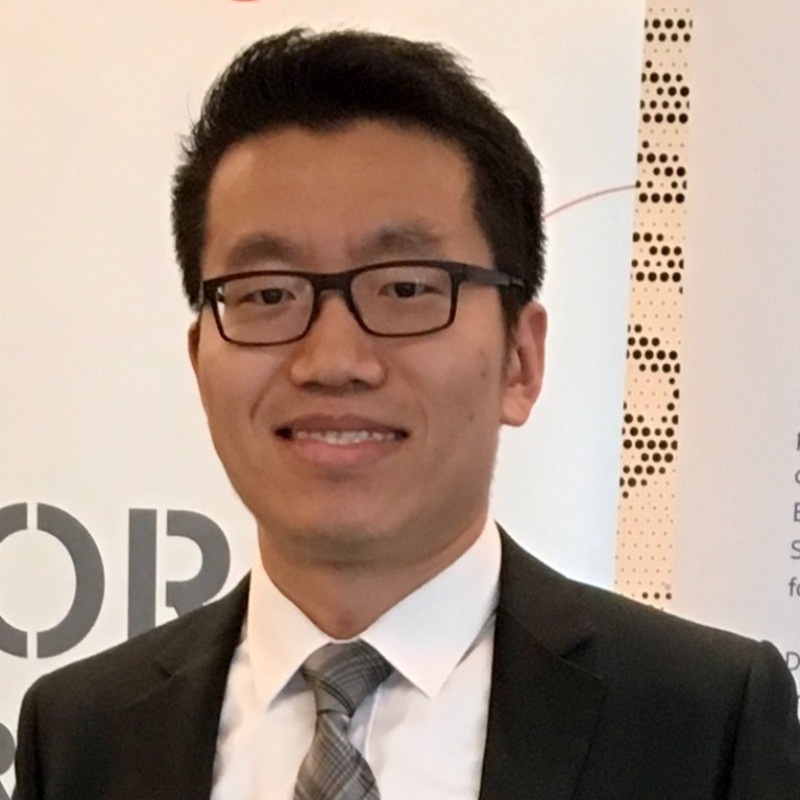
Zhiwei (Tony) Qin Tony Qin is Co-founder and Chief Scientist of Eva AI (foreva.ai). Previously, he was Principal Scientist at Lyft Rideshare Labs and Director of the Decision Intelligence group at DiDi AI Labs, spearheaded the development of reinforcement learning (RL) for rideshare marketplace optimization. Tony received his Ph.D. in Operations Research from Columbia University. He is Associate Editor of the ACM Journal on Autonomous Transportation Systems. He has served as Area Chair/Senior PC of KDD, AAAI, and ECML-PKDD, and a referee of top journals. He is an INFORMS Senior Member, a Franz Edelman Award Finalist and Laureate in 2023 and received the INFORMS Daniel H. Wagner Prize for Excellence in Operations Research Practice in 2019. He is the lead author of the book “Reinforcement Learning in the Ridesharing Marketplace” published by Springer.
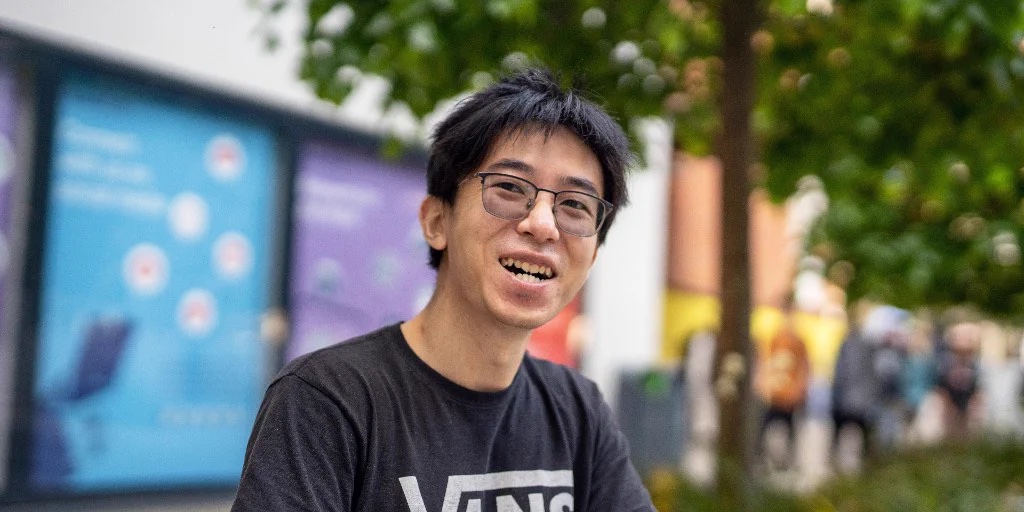
Chengchun Shi is an Associate Professor in the Department of Statistics at LSE. He works at the interface of RL and statistics, with applications to ride-sharing and healthcare. His work brings to light the relevance and significance of statistical learning in RL, and demonstrates the usefulness of RL as a framework for policy evaluation and A/B testing in two-sided marketplaces. Chengchun has published approximately 70 papers, with half of them accepted in prestigious statistical journals (JRSSB, JASA, AoS) and top machine learning venues (NeurIPS, ICML, KDD, JMLR). His outstanding contributions have been recognized with esteemed awards such as the Institute of Mathematical Statistics Tweedie Award, the Royal Statistical Society Research Prize and ICSA Outstanding Young Research Award. He is serving as the associate editors of JRSSB, JASA and Journal of Nonparametric Statistics. He also serves as a reviewer for a range of machine learning conferences, including NeurIPS, ICML, ICLR, AAAI, AISTATS, and KDD.

Hongtu Zhu is a tenured professor of biostatistics, statistics, computer science, and genetics at University of North Carolina at Chapel Hill. He was DiDi Fellow and Chief Scientist of Statistics at DiDi Chuxing between 2018 and 2020 and was Endowed Bao-Shan Jing Professorship in
Diagnostic Imaging at MD Anderson Cancer Center between 2016 and 2018. He is an internationally recognized expert in statistical learning, medical image analysis, precision medicine, biostatistics, artificial intelligence, and big data analytics. He has been an elected Fellow of American Statistical Association and Institute of Mathematical Statistics since 2011. He received an established investigator award from Cancer Prevention Research Institute of Texas in 2016 and received the INFORMS Daniel H. Wagner Prize for Excellence in Operations Research Practice in 2019. He has published more than 340+ papers in top journals including Nature, Science, Cell, Nature Genetics, JMLR, PNAS, AOS, JASA, and JRSSB, as well as 54+ conference papers in top conferences including NeurIPS, ICML, AAAI, KDD, ICDM, MICCAI, and IPMI. He is the elected Editor in Chief of Journal of American Statistical Association, Application and Case Study and Coordinating editor.
TH23: Inferential Machine Learning: Towards Human-collaborative Vision and Language Models
Neural network driven applications like ChatGPT suffer from hallucinations where they confidently provide inaccurate information. A fundamental reason for this inaccuracy is the feed-forward nature of inductive decisions taken by neural networks. Such decisions are a result of training schemes that do not allow networks to deviate from and creatively abduce reasons at inference. With the advent of foundation models that are adapted across applications and data, humans can directly intervene and prompt vision-language foundation models. However, without understanding the operational limits of the underlying networks, human interventions often lead to unfair, inaccurate, hallucinated and unintelligible outputs. These outputs undermine the trust in foundation models, thereby causing roadblocks to their adoption in everyday lives. In this tutorial, we provide a systematic way to analyze and understand human interventions in neural network functionality at inference. Specifically, our insights are the following: 1) decision theory must be abductive rather than deductive or inductive, 2) interventions must be analyzed as a function of the ‘not-taken’ residual interventions, 3) interventions are not always positive and networks must be equipped to detect unfair and adversarial decisions and interactions. The end goal is to promote a human-AI collaborative environment via inferential machine learning techniques.
The tutorial is composed of three major parts. Part 1 motivates inferential machine learning by discussing some recent surprising results regarding training neural networks with out-of-distribution (OOD) data, the conclusions of which are that it is not always clear when and how to use OOD data in a training setup. This is followed by a discussion on empirical inferential methods including post hoc explainability and uncertainty quantification. Part 2 introduces probabilistic interventional frameworks with applicability in vision applications. Additionally, we demonstrate how large models fail when there are humans in the decision-making loop and measures that can help mitigate and manage failures. Part 3 discusses human intervenability in foundation models with a focus on vision and language applications, specifically in fairness applications. The detailed subtopics, tutorial outline, and suggested reading are present at https://alregib.ece.gatech.edu/courses-and-tutorials/aaai-2025-tutorial/.
This tutorial is intended for graduate students, researchers, engineers, and data scientists working in different topics related to visual information processing, machine learning, robust machine learning, and explainable AI. The audience are expected to have a basic understanding of neural networks and robustness applications including image recognition and detection.
Tutorial Website: https://alregib.ece.gatech.edu/courses-and-tutorials/aaai-2025-tutorial/

Ghassan AlRegib is currently the John and McCarty Chair Professor in the School of Electrical and Computer Engineering at the Georgia Institute of Technology. His research group, the Omni Lab for Intelligent Visual Engineering and Science (OLIVES) works on research projects related to machine learning, image and video processing, seismic interpretation, machine learning for ophthalmology, and video analytics. In 2008, he received the ECE Outstanding Junior Faculty Member Award. In 2017, he received the 2017 Denning Faculty Award for Global Engagement. He and his students received the Beat Paper Award in ICIP 2019. He is an IEEE Fellow.

Mohit Prabhushankar received his Ph.D. degree and is currently a Postdoctoral Fellow in the Georgia Institute of Technology. He is working in the fields of machine learning, image processing, healthcare, and robust and explainable AI. He is the recipient of the Best Paper award at ICIP 2019 and Top Viewed Special Session Paper Award at ICIP 2020. He is the recipient of the ECE Outstanding Graduate Teaching Award, the CSIP Research award, and of the Roger P Webb ECE Graduate Research Excellence award, all in 2022.

Xiaoqian Wang is an Assistant Professor of Electrical and Computer Engineering at Purdue University. She received her Ph.D. degree from the University of Pittsburgh in 2019, and the B.S. degree from Zhejiang University in 2013. She focuses on designing novel machine learning models for interpretability, fairness, and robustness. She also works on the intersection of machine learning and bioinformatics, healthcare. She received an NSF CAREER award in 2022, and an AAAI distinguished paper award in 2023.
TH24: Machine Learning for Solvers
Machine learning (ML) and logical reasoning have been the two foundational pillars of AI since its inception, yet it is only in the past decade that interactions between these fields have become increasingly prominent. Notably, ML has had a dramatic impact on SAT and SMT solvers, as demonstrated by the award-winning SATzilla, MapleSAT, and Z3alpha solvers. Our tutorial aims to inspire new interdisciplinary research by bridging the gap between ML and logical reasoning research communities. We will introduce the broader AI community to ML techniques that have been used in the context of logical reasoning solvers, with a sharp focus on approaches that are successful and promising. We will also host a panel discussion on how LLMs may shape this area going forward.
Rather than pure end-to-end learning, successful ML approaches tend to be tightly integrated with symbolic solvers. The central thesis of our tutorial, supported by numerous successful cases, is that ML excels best when it is used to sequence, select, initialize, and configure proof/rewrite rules that solvers implement. One prominent example that we will highlight is the use of ML for learning branching heuristics, both online for particular instances using reinforcement learning (RL) and offline training a neural network policy across representative instances from a particular application.
Our tutorial assumes only a basic understanding of ML and begins with essential backgrounds on logical solvers. We explore the main ML-for-solving paradigms—algorithm selection, algorithm configuration, and reinforcement learning for heuristics—highlighting successful applications in each area. We also examine why graph neural networks (GNNs) are an appropriate architecture for modeling logical formulae with neural networks. We will conclude the tutorial section with a hands-on coding demonstration of how to configure a parameterized solver for a specific application, applying SMAC to fine-tune online learning parameters in MapleSAT. Participants are encouraged to bring their own solver and application to test whether this method could be effective for their own work.
Finally, we will have a panel discussion with leading experts to discuss the implications of LLMs for logical reasoning, a topic where opinions tend to be very polarized in the AI community. The panel will examine how effective LLMs might be for reasoning tasks and, conversely, how integrating formal logical reasoning could enhance the trustworthiness of LLMs.
Website: https://ml-for-solvers.github.io

Dr. Vijay Ganesh is a professor of computer science at Georgia Tech. Previously, Vijay was a professor at UWaterloo and a research scientist at MIT. Vijay’s primary area of research is the theory and practice of SAT/SMT solvers, and their application in AI, software engineering, security, mathematics, and physics.

Kevin Leyton-Brown is a professor of Computer Science at the University of British Columbia and holds a Canada CIFAR AI Chair at Amii. He studies artificial intelligence, mostly at the intersection of machine learning with both the design and operation of electronic markets and the design of heuristic algorithms.

Chris Cameron is a PhD candidate nearing completion at the University of British Columbia. He studies algorithm design as a machine learning problem, focusing on customizing heuristic algorithms for combinatorial search problems in specific applications.

John Zhengyang Lu is a PhD student with the EEDF fellowship at the University of Waterloo, specializing in the intersection of machine learning and automated reasoning. His PhD research focuses on data-driven algorithm design for SAT, SMT, and verification.

Piyush Jha is a PhD student at Georgia Tech specializing in the integration of Machine Learning and symbolic reasoning. His research focuses on improvements in parallel SAT solving (AlphaMapleSAT) and LLM performance (RLSF) for AI-driven scientific discovery, creating scalable, impactful solutions that bridge AI innovation with practical, real-world applications.
TH25: Model Reuse: Unlocking the Power of Pre-Trained Model Resources
The classical machine learning paradigm relies heavily on data-centric approaches, demanding vast amounts of data and computational resources, often posing significant challenges in many AI applications. In response, the model-centric paradigm — model reuse — offers a promising alternative by leveraging a wealth of Pre-Trained Models (PTMs) rather than training models from scratch. Although existing strategies for PTM reuse exist, their full potential is often underutilized.
This tutorial provides a comprehensive overview of model reuse techniques, emphasizing the exploration of PTM zoos, adapting one or more PTMs to specific target tasks, and effectively managing PTMs within these repositories. We cover methods for reusing both classical PTMs and large-scale models, such as LLMs, equipping participants with valuable insights to optimize their AI workflows through model reuse.

Han-Jia Ye is an associate professor in the School of Artificial Intelligence at Nanjing University. His primary research interest is in machine learning, including representation learning, model reuse, meta-learning, and continual learning. He received his PhD degree in computer science from Nanjing University, China, in 2019. He has served as the tutorial co-chair of SDM’23 and doctoral forum co-chair of SDM’22. Additionally, he is an area chair for top-tier conferences, including ICML, NeurIPS, ICLR, IJCAI, CVPR, and others.

Lan-Zhe Guo is an assistant professor in the School of Intelligence Science & Technology at Nanjing University. His primary research area is machine learning, specifically in model reuse, semi-supervised learning, and open-environment machine learning. He received PhD degree in computer science from Nanjing University, China, in 2022. He is a Senior Program Committee/Program Committee member for top-tier conferences, including ICML, NeurIPS, ICLR, AAAI, IJCAI, etc. He has co-organized a workshop on Robust Machine Learning in Open Environments in PAKDD 2024. He also served as a workflow chair for ACML 2022/2023, and IJCAI 2025.

Da-Wei Zhou received the PhD degree in computer science from Nanjing University, China, in 2024. He is currently an associate researcher with the National Key Lab for Novel Software Technology, the School of Artificial Intelligence, Nanjing University. His research interests lie primarily in machine learning and computer vision. He has published extensively on top-tier conferences and journals in relevant fields, including NeurlPS, ICLR, ICML, CVPR, TPAMI, IJCV, etc. He serves as Program Committee member in leading conferences, such as ICML, NeurIPS, ICLR, CVPR, etc, and was recognized as NeurIPS’s top reviewer and CVPR’s outstanding reviewer.
TH26: Symbolic Regression: Towards Interpretability and Automated Scientific Discovery
This tutorial provides a comprehensive exploration of Symbolic Regression, an emerging area of AI focused on discovering interpretable mathematical expressions from data. As AI systems become increasingly integrated into critical domains, the ability to uncover transparent, mathematical relationships is essential for advancing scientific understanding and developing trustworthy AI systems. The tutorial is designed for researchers and practitioners in machine learning, AI, and scientific domains interested in interpretable modeling and automated discovery. While basic knowledge of machine learning concepts is assumed, no prior experience with symbolic regression is required.
We begin with an introduction to Interpretable AI, highlighting its importance in various domains. The tutorial then covers the foundations of symbolic regression, including problem definition, expression representation, and key challenges. We present a taxonomy of symbolic regression methods, from traditional search-based approaches to modern learning-based techniques and recent hybrid methods. This includes evolutionary algorithms, reinforcement learning, transformer-based models, and the integration of Large Language Models (LLMs) in equation discovery. The tutorial addresses the crucial aspects of evaluation and benchmarking, discussing current common benchmarks, various evaluation metrics, and the limitations of existing benchmarks. We explore applications across diverse fields, emphasizing symbolic regression’s potential for interpretable modeling and scientific discovery.
By the end, attendees will be equipped with knowledge of core concepts and recent advancements in symbolic regression, as well as an understanding of its potential to push the boundaries of automated interpretable data-driven modeling. The tutorial will also highlight the numerous research opportunities in this field, inspiring attendees to contribute to the advancement of symbolic regression and its applications in various scientific and industrial domains.
For more details, visit: https://symbolicregression2025.github.io/
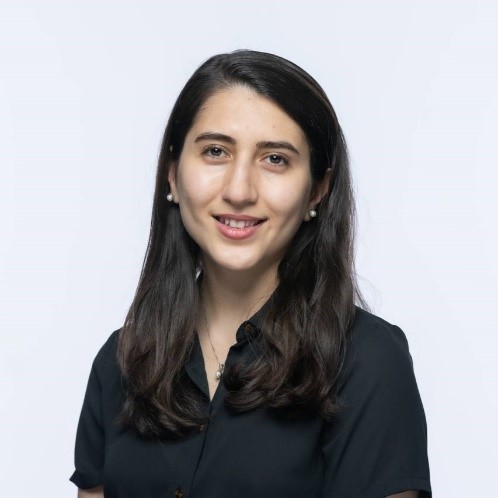
Parshin Shojaee is a Ph.D. candidate in Computer Science at Virginia Tech, specializing in developing language models for mathematical and scientific discovery. Her research has been published in top AI venues such as NeurIPS, ICLR (spotlight), and TMLR. Parshin’s research interests include incorporating symbolic and numeric representations of mathematics into language models and creating multi-modal foundation models for scientific discovery.

Nour Makke is a distinguished researcher bridging AI and Physics, currently serving as a Postdoctoral Research Fellow at Qatar Foundation’s Center for Artificial Intelligence. Sher is currently focused on the research and development of interpretable AI solutions for the physical sciences. Her prior experience includes active involvement in high-energy physics experiments conducted at CERN. Dr. Nour completed her PhD at the University of Paris-Sud (now Paris-Saclay) in France.

Chandan K Reddy is a Professor in the Department of Computer Science at Virginia Tech. He is also an Amazon Scholar. He received his Ph.D. from Cornell University and M.S. from Michigan State University. His primary research interests are Machine Learning and Natural Language Processing with applications to Healthcare, Software, Transportation, and E-commerce. His research has been funded by NSF, NIH, DOE, DOT, and various industries. He has published over 180 peer-reviewed articles in leading conferences and journals. He received several awards for his research work including the Best Application Paper Award at ACM SIGKDD conference in 2010, Best Poster Award at IEEE VAST conference in 2014, Best Student Paper Award at IEEE ICDM conference in 2016, and was a finalist of the INFORMS Franz Edelman Award Competition in 2011. published two books, namely, “Healthcare Data Analytics” and “Data Clustering: Algorithms and Applications”. He is serving (or served) on the editorial boards of ACM TKDD, ACM TIST, NPJ AI, and IEEE Big Data journals. He is a senior member of the IEEE and distinguished member of the ACM. More information about my research and teaching activities can be found at my homepage: https://creddy.net

Sanjay Chawla serves as the Chief Scientist of Qatar Computing Research Institute (QCRI) at Hamad Bin Khalifa University and leads the AI Group. QCRI’s applied areas include Arabic Natural Language Technologies, Cybersecurity, Humanitarian AI, Human-AI Interaction and Digital Health which are supported by a group of researchers working on foundational topics. A team of engineers is responsible for translating research prototypes into deployable solutions. Sanjay’s own research is primarily in the design of applied algorithms for data mining and machine learning tasks. For example, along with collaborators he proposed the kmeans– (minus minus) algorithm for unified clustering and outlier detection. More recently his work has focused on designing scalable algorithms for adversarial robustness. A related problem is that of Out of Distribution (OOD) detection – namely the ability of AI systems to accurately recognize data samples that are different from the ones used for training. Accurate detection of OOD instances is a hard challenge and the key bottleneck that has, for example, prevented the roll out of fully autonomous vehicles. Another major challenge in deep learning methods is their inherent black box nature. While deep models provide excellent predictive performance, their lack of explainability and interpretability has been a barrier for their acceptance in natural science domains. To address the gap, his group is working on designing and applying symbolic regression approaches to directly discover mathematical equations from data. Before joining QCRI in 2014, Sanjay was a Professor in the School of Information Technologies, University of Sydney, Australia. He served as the Head of School from 2008-2011. In 2021, he was the PC-co chair of the research track of the ACM SIGKDD conference. Sanjay received his PhD in Mathematics (1995) from the University of Tennessee, Knoxville, USA.
TH27: Tutorial: Multimodal Artificial Intelligence in Healthcare
More Information to Come
Quarter Day Tutorials
TQ01: Advancing Offline Reinforcement Learning: Essential Theories and Techniques for Algorithm Developers
This tutorial will equip empirical reinforcement learning (RL) researchers, including graduate students, early-career researchers and industry practitioners, with a deep theoretical understanding of offline RL. By explaining the necessary and sufficient conditions for theoretical guarantees, participants will gain insights into the challenges of offline RL compared to supervised learning and online RL, including reliance on bootstrapping targets, partial state-action space coverage, and spurious data.
Participants will first explore essential conditions for theoretical guarantees under these challenges and their connection to empirical limitations, such as dataset quality and neural network expressivity. The session will also cover advanced techniques for overcoming the difficulties of Offline RL under more realistic, weaker theoretical assumptions, including pessimism and density ratio estimation. Additionally, Hybrid Reinforcement Learning (Hybrid RL) approaches that integrate offline data with online interactions will be introduced to enhance exploration and data efficiency. This tutorial equips algorithm developers and early-career researchers with the tools to improve offline RL applications by combining theoretical insights with practical algorithmic strategies.
Participants attending this tutorial need to know basic reinforcement learning principles, such as Markov Decision Processes, value functions, and the optimal Bellman operator. Little mathematical knowledge is required since the tutorial will not cover detailed math proofs. Prior knowledge of offline RL algorithms will be beneficial but optional.
For more information, please check https://fengdic.github.io/offlineRL/

Fengdi Che is a fourth-year PhD student at the University of Alberta, supervised by Dr. A. Rupam Mahmood. Her primary research interest focuses on effectively using data for reinforcement learning. She designs and analyzes algorithms that leverage datasets experiencing distribution shifts and investigates how data should be collected.
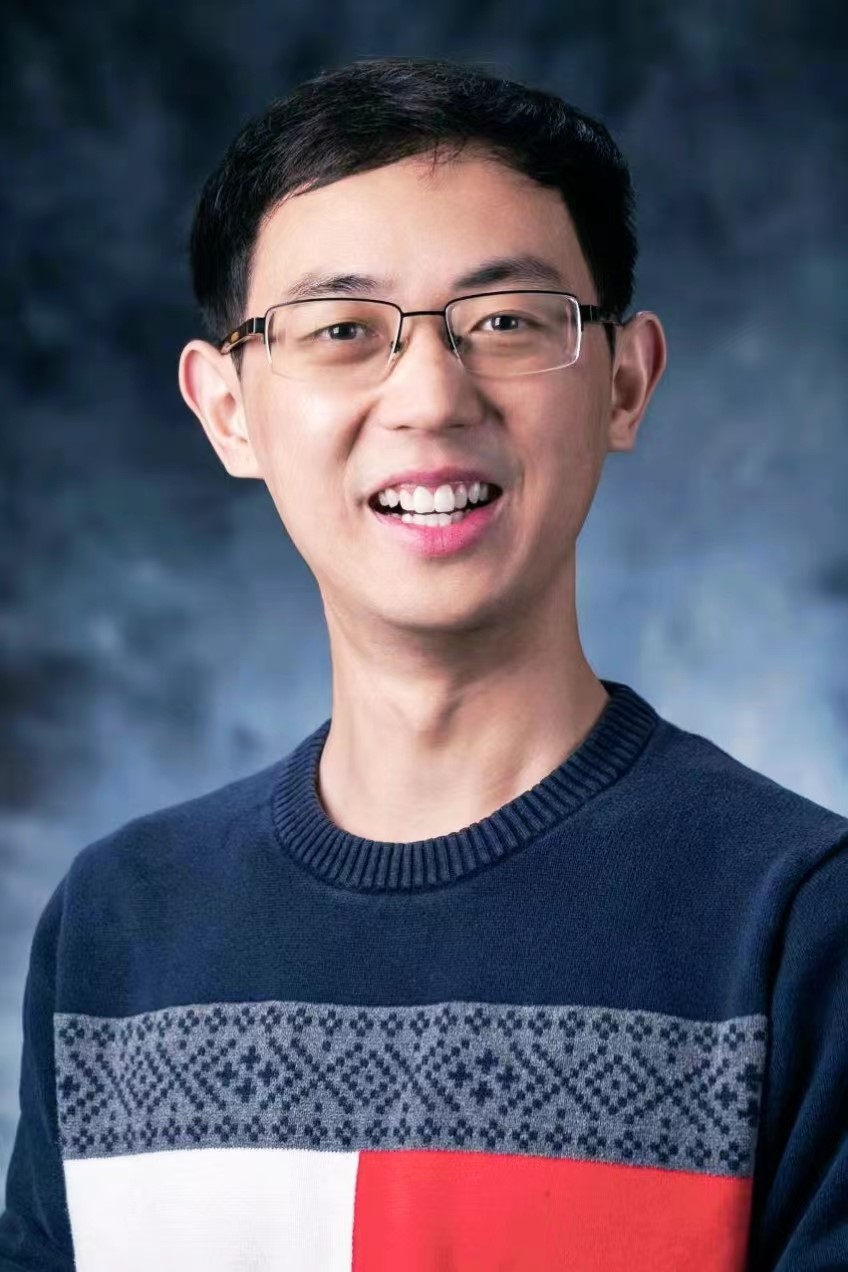
Ming Yin is a Postdoctoral Associate at the Princeton ECE department. His research spans a wide range of machine learning topics, including the theoretical and empirical fronts of reinforcement learning, safety and robustness, and Large language model evaluations. He has also spent time with Amazon AWS AI Lab multiple times.
TQ02: Unified Semi-Supervised Learning with Foundation Models
More Information to Come
TQ03: Reinforcement Learning with Temporal Logic objectives and constraints
More Information to Come
TQ04: Deep Representation Learning for Tabular Data
Tabular data is one of the most common data sources in machine learning. Classical methods like logistic regression, support vector machines, and decision trees have long been the cornerstone of numerous algorithms. However, recent advancements in deep learning provide new way for feature extraction and performance improvement. This tutorial is structured to provide a comprehensive understanding of deep learning architectures for tabular data. It begins by defining tabular data and comparing classical solutions with deep learning alternatives. Then methods for standard tabular tasks such as classification and regression are categorized into token-based, raw-feature-based, and large language model (LLM)-based methods. In addition to standard prediction tasks, the tutorial introduces the concept of foundation models for tabular data, focusing on model generalization across multiple datasets and discussing transfer learning challenges.

Han-Jia Ye is an associate professor in the School of Artificial Intelligence at Nanjing University. His primary research interest is in machine learning, including representation learning, model reuse, meta-learning, and continual learning. He received his PhD degree in computer science from Nanjing University, China, in 2019. He has served as the tutorial co-chair of SDM’23 and doctoral forum co-chair of SDM’22. Additionally, he is an area chair for top-tier conferences, including ICML, NeurIPS, ICLR, IJCAI, CVPR, and others.

Jun-Peng Jiang is a Ph.D. candidate in the School of Artificial Intelligence at Nanjing University. His primary research interest is in machine learning, including tabular data learning, multimodal learning, and large language models. His research aims to empower machines with knowledge to positively influence real-world applications, health, and sciences. His work has been recognized from top-tier conferences such as ICML.
TQ05: LLMs and Copyright Risks: Benchmarks and Mitigation Approaches
The landscape of artificial intelligence has been dramatically transformed by the advent of Large Language Models (LLMs) such as GPT and its successors. These powerful systems have not only revolutionized natural language processing but have also permeated diverse sectors including healthcare, software development, finance, and education. While LLMs have unlocked unprecedented capabilities in text generation and analysis, they have simultaneously given rise to complex legal and ethical challenges, particularly in the realm of copyright law. The ability of these models to produce human-like text has blurred the boundaries between original creation and potential copyright infringement, as evidenced by recent New York Times legal actions against AI company (Microsoft). This tutorial aims to navigate this intricate terrain, providing a comprehensive exploration of the copyright issues surrounding LLMs and equipping participants with the knowledge and tools to address these challenges.
In this tutorial, we will comprehensively review existing paradigms for copyright risk assessment and mitigation in LLMs, focusing on their contributions to responsible AI development and deployment. We categorize the approaches into probing and benchmarking, influence analysis, unlearning techniques, and finetuning-based behavior regulation. For probing and benchmarking, we will explore methodologies for creating quantitative measures to assess the extent of copyrighted content reproduction in LLM outputs. Influence analysis will cover the application of influence functions to detect and quantify the impact of potentially copyrighted material in training data. We will then examine machine unlearning techniques as a means to selectively remove knowledge of copyrighted content from trained LLMs. Finally, we will present efficient finetuning and alignment methodologies designed to modify LLM behavior with respect to copyright considerations. Participants will learn about recent trends and emerging challenges in copyright-aware LLM research, as well as resources and tools to implement these techniques. The tutorial aims to prompt thorough discussions regarding the impact of copyright considerations on LLM development and the broader implications for AI ethics and governance.
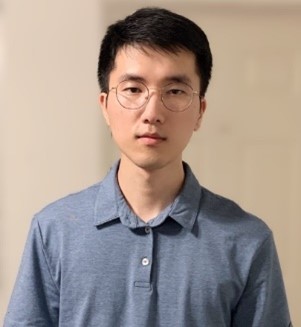
Denghui Zhang is an Assistant Professor in the School of Business at Stevens Institute of Technology. He studies the interplay between LLMs/GenAI, legal and socioethical issue, business and innovation. His work is published in refereed venues, such as IEEE TKDE, SIGKDD, NeurIPS, EMNLP, AAAI, etc., and won Best Student Paper award at 2023 International Conference on Information Systems.

Zhaozhuo Xu is an assistant professor at Stevens Institute of Technology, focusing on scalable and sustainable ML. His work, published in venues like NeurIPS, ICML, and ICLR, has been adopted by Huggingface and startups. He is the area chair of ICLR, ARR and COLING. He was the organizer of Research On Algorithms \& Data Structures (ROADS) to Mega-AI Models Workshop at MLSys 2023.
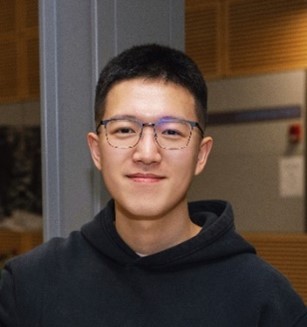
Boyi Wei is a Ph.D. student at Princeton University, advised by Peter Henderson. His research focuses on aligning machine learning systems, especially on understanding the safety alignment of language models and exploring related legal and policy issues. He received his B.Sc from University of Science and Technology of China.

David Atkinson, J.D., is a lecturer at the McCombs School of Business at The University of Texas at Austin, where he teaches courses on law, ethics, artificial intelligence, and the legal environment of business. He also serves as legal counsel for the Allen Institute for Artificial Intelligence, specializing in privacy, security, export control, and contracts. Previously, he was senior corporate counsel at the autonomous trucking company TuSimple and a technology scout for the U.S. Army. Additionally, Atkinson has served as legal counsel for the education technology company PowerSchool, worked as an InSITE consultant fellow for startups, and co-founded the legal education company Illustrated Law. He also holds master’s degrees from Harvard and Kansas State University and a B.S. from Truman State University.
TQ06: Physics-Inspired Geometric Pretraining for Molecule Representation
Molecular representation pretraining plays a crucial role in drug and material discovery applications. While most existing research has focused on pretraining using 2D molecular graphs, recent advancements have explored the potential of pretraining on 3D geometric structures. In this tutorial, I will begin by introducing methods for molecular geometric representation, including group-invariant and equivariant representations, as well as self-supervised learning techniques for pretraining. Building on these foundations, I will then explore the integration of these approaches, offering a comprehensive overview of geometric pretraining for molecular representation and discussing the latest developments in this exciting research area.

Shengchao Liu is a postdoctoral fellow at EECS, UC Berkeley, working with Professors Jennifer Chayes and Christian Borgs. He completed his Ph.D. at Mila–Université de Montréal (UdeM) under Jian Tang. Shengchao’s research explores the intersection of artificial intelligence and physics, with applications in chemistry, biology, and materials science. He has published extensively in top venues such as NeurIPS, ICLR, ICML, AISTATS, AAAI, TMLR, Nature Machine Intelligence, Nature Communications, and ACS JCIM, contributing to molecular graph representation, multi-task transfer learning, geometric representation pretraining, AI-augmented molecular dynamics simulation, and AI-generated drug discovery. Shengchao also serves as a reviewer for leading conferences and journals, including NeurIPS, ICLR, ICML, AISTATS, Nature Machine Intelligence, and Nature Communications.
Homepage: https://chao1224.github.io/
TQ07: From Tensor Factorizations to Circuits (and Back)
This tutorial will bridge the two often separate communities of tensor factorizations and circuit representations, which investigate concepts that are intimately related.
By connecting these fields, we highlight a series of opportunities that can benefit both communities. We will draw theoretical as well as practical connections, e.g., in efficient probabilistic inference, reliable neuro-symbolic AI and scalable statistical modeling. Second, we will introduce a modular “Lego block” approach to build tensorized circuit architectures in a unified way. This, in turn, allows us to systematically construct and explore various circuit and tensor factorization models while maintaining tractability. At the end of it, the audience will learn about the state-of-the-art in representing, learning and scaling tensor factorizations and circuits.
The tutorial will start from classical tensor factorizations and extend them to a hierarchical setting, where the connection to circuit representations will be highlighted. Then, we will list several opportunities by bridging the two communities, such as using hierarchical tensor factorizations for neuro-symbolic inference or exploiting algorithms from the tensor network communities to learn circuits. Lastly, we will showcase how one can understand the many recent algorithms and representations to learn circuits from data as hierarchical tensor factorizations.
Prerequisite knowledge. The tutorial requires basic knowledge of machine learning, probability theory and linear algebra at the level of an introductory course. All other required notions will be provided during the tutorial.
Supplemental website: https://april-tools.github.io/aaai25-tf-pc-tutorial

Lorenzo Loconte is a PhD student at the University of Edinburgh. The focus of his research lies at the intersection of tractable probabilistic modeling and tensor factorizations for efficient ML methods. He is interested in understanding and tracing the expressiveness of probabilistic models, when theoretically understood within the ecosystem of circuits. Recently, his publications on connecting circuits and tensor factorizations at NeurIPS 2023 and ICLR 2024 have been awarded an oral presentation and a spotlight, respectively.

Antonio Vergari is a Reader (Associate Professor) in Machine Learning and a member of the ELLIS Unit at the University of Edinburgh. His research focuses on efficient and reliable machine learning in the wild, tractable probabilistic modeling and combining learning with complex reasoning. He is interested in unifying probabilistic reasoning. Recently, he has been awarded an ERC Starting Grant called “UNREAL – a Unified REAsoning Layer for Trustworthy ML”. Previously he has been a postdoc at UCLA and before that he did a postdoc at the Max Planck Institute for Intelligent Systems in Tuebingen, Germany. He obtained a PhD in Computer Science and Mathematics at the University of Bari, Italy. He published several conference and journal papers in top-tier AI and ML venues such as NeurIPS, ICML, UAI, ICLR, AAAI, ECML-PKDD and more, several of which have been awarded oral and spotlight presentations. He frequently engages with the tractable probabilistic modeling and the deep generative models communities by organizing a series of events: the Tractable Probabilistic Modeling Workshop (ICML2019, UAI2021, UAI2022, UAI2023), the Tractable PRobabilistic Inference MEeting (T-PRIME) at NeurIPS 2019 and presented a series of tutorials on complex probabilistic reasoning and models at UAI 2019, AAAI 2020, ECAI 2020, IJCAI 2021 and NeurIPS 2022. He organized a Dagstuhl Seminar on “Recent Advancements in Tractable Probabilistic Inference”.
Website: https://sites.google.com/view/aaai25-tutorial-algor-fair/home

Chen Zhao is an Assistant Professor in the Department of Computer Science at Baylor University. Prior to joining Baylor, he was a senior R&D computer vision engineer at Kitware Inc. He earned his Ph.D. in Computer Science from the University of Texas at Dallas in 2021. His research focuses on machine learning, data mining, and artificial intelligence, particularly fairness-aware machine learning, novelty detection, and domain generalization. His publications have been accepted and published in premier conferences, including KDD, CVPR, IJCAI, AAAI, WWW, etc. Dr. Zhao serves as a PC member of top international conferences, such as KDD, NeurIPS, IJCAI, ICML, AAAI, ICLR, etc. He has organized and chaired multiple workshops on topics of Ethical AI, Uncertainty Quantification, Distribution Shifts, and Trustworthy AI
for Healthcare at KDD (2022, 2023, 2024), AAAI (2023), and IEEE BigData (2024). He serves as the co-chair of the Challenge Cup of the IEEE Bigdata 2024 conference and a tutorial co-chair for the PAKDD 2025 conference.
Homepage: https://charliezhaoyinpeng.github.io/homepage/index.html

Xintao Wu is a Professor and the Charles D. Morgan/Acxiom Endowed Graduate Research Chair in Database and leads the Social Awareness and Intelligent Learning (SAIL) Lab in the Electrical Engineering and Computer Science Department at the University of Arkansas. Dr. Wu is an associate editor or editorial board member of several journals and program committees as area chair, senior PC, and PC of top international conferences. He has served as the program co-chair of ACM EAI-KDD workshops (2022, 2023, 2024), the IEEE BigData’2020, ICLMA’2024, and PAKDD’2025. He also gave multiple tutorials on trustworthy AI at top international conferences, including ACM KDD, IEEE BigData, and SIAM SDM.
TQ08: KV Cache Compression for Efficient Long Context LLM Inference: Challenges, Trade-Offs, and Opportunities
Long context capacity is a key competency for large language models (LLMs), addressing humans’ difficulty in processing long-form texts. This ability is essential for complex tasks like book summarization and code assistance, which traditionally require significant manual effort. However, transformer-based LLMs encounter challenges when dealing with long input contexts due to the increasing size of the KV cache and the complexity of attending to extended sequences.
The goal of this tutorial is to introduce participants to the latest methods for efficiently handling long-context inputs in LLMs during inference. Participants will learn about cutting-edge approaches to reduce memory and compute requirements associated with long context scenarios by employing KV cache compression, token dropping, prompt compression, and other techniques. This tutorial will offer both theoretical foundations and practical insights into these methodologies. The target audience includes AI researchers and practitioners interested in deploying or optimizing LLMs for real-world applications requiring large context windows, such as code completion, book summarization, or document retrieval.
This tutorial consolidates several state-of-the-art techniques into a unified framework for benchmarking and optimizing LLMs for long-context capabilities. Attendees will leave with a clear understanding of how to apply these long-context LLM inference methods in their own projects to reduce costs while maintaining or improving performance.
Website: https://github.com/henryzhongsc/longctx_bench

Zhaozhuo Xu is an assistant professor at Stevens Institute of Technology, focusing on scalable and sustainable ML. His work, published in venues like NeurIPS, ICML, and ICLR, has been adopted by Huggingface and startups. He is the area chair of ICLR, ARR and COLING. He was the organizer of Research On Algorithms \& Data Structures (ROADS) to Mega-AI Models Workshop at MLSys 2023.

Zirui Liu is an assistant professor at the University of Minnesota. His research focuses on scalable machine learning, large language models, and machine learning on graphs. He regularly publishes papers at NeurIPS, ICML, and ICLR. His work has been adopted by impactful open-source projects like Llama.cpp and companies such as Google and HuggingFace, and was featured in the Google I/O session.

Shaochen (Henry) Zhong is a PhD student at Rice University focusing on efficient and capable machine learning systems. Henry’s works have been featured at top conferences like NeurIPS, ICML, ICLR, EMNLP, etc, yet his LLM survey work is utilized in many heavy-weight talks — such as the State of GPT by OpenAI — and is among one of the most read articles in the 2024 ACM publishing series.

Jiayi Yuan is a PhD student at Rice University focusing on efficient and trustworthy machine learning, and its applications in natural language processing, computer vision, and health informatics. His works have been published at top conferences like NeurIPS, ICML, EMNLP, ISCA, etc. He is the recipient of the best student paper award of AMIA 2023 and the IEEE Micro Top Pick 2023.

Beidi Chen is an Assistant Professor at Carnegie Mellon University. Her research focuses on efficient deep learning, specifically designing and optimizing randomized algorithms on current hardware to accelerate large ML systems. Her work has won best paper runner-up at ICML 2022 and she was selected as a Rising Star in EECS by MIT and UIUC. She was a workshop chair for MLSys 2023 and 2024, and co-organized many workshops at ICML and NeurIPS.
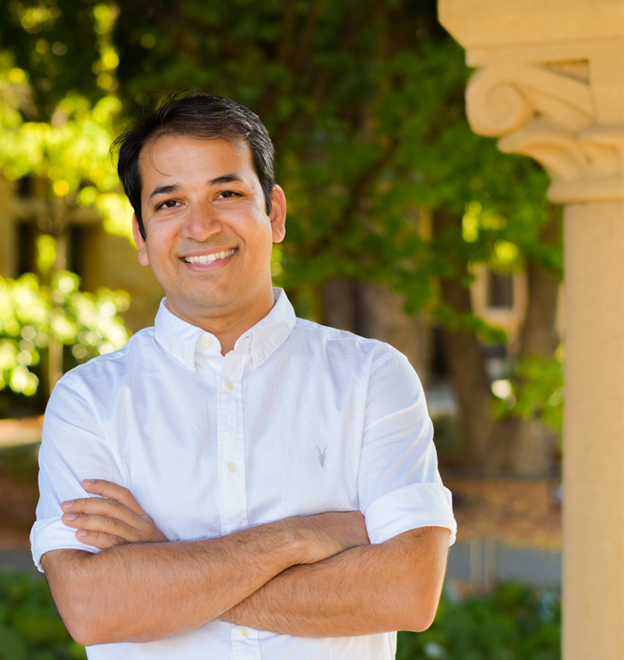
Anshumali Shrivastava is an associate professor in the computer science department at Rice University. He is also the Founder and CEO of ThirdAI Corp. His broad research interests include probabilistic algorithms for resource-frugal deep learning. He has won numerous paper awards, including the Best Paper Award at NIPS 2014, MLSys 2022, and Most Reproducible Paper Award at SIGMOD 2019. He is the senior area chair of the ICLR conference. is an associate professor in the computer science department at Rice University. He is also the Founder and CEO of ThirdAI Corp. His broad research interests include probabilistic algorithms for resource-frugal deep learning. He has won numerous paper awards, including the Best Paper Award at NIPS 2014, MLSys 2022, and Most Reproducible Paper Award at SIGMOD 2019. He is the senior area chair of the ICLR conference.

Xia Hu is an Associate Professor in Computer Science at Rice University. His research focuses on data mining and machine learning. His papers have received several Best Paper (Candidate) awards from venues such as ICML, WWW, WSDM, ICDM, AMIA and INFORMS. He was the General Co-Chair for WSDM 2020 and ICHI 2023. He has hosted tutorials in PAKDD 2014, CIKM 2022, and KDD 2023.
TQ09: Supervised Algorithmic Fairness in Distribution Shifts
Supervised fairness-aware machine learning under distribution shifts is an emerging field that addresses the challenge of maintaining equitable and unbiased predictions when faced with changes in data distributions from source to target domains. In real-world applications, machine learning models are often trained on a specific dataset but deployed in environments where the data distribution may shift over time due to various factors. This shift can result in classifiers exhibiting poor generalization with low accuracy and making unfair predictions, which disproportionately impact certain groups identified by sensitive attributes, such as race and gender.
In this tutorial, we begin by providing a comprehensive summary of various types of distribution shifts organized into two main categories and briefly discuss the factors contributing to the emergence of unfair outcomes by supervised learning models under such shifts. Then, we conduct a thorough examination of existing methods for maintaining algorithmic fairness based on these shifts and highlight six commonly used approaches in the literature. Furthermore, we introduce frameworks for fairness-aware generalization under distribution shifts, including the latest research developments. Finally, we explore the intersections with related research fields, address significant challenges, and propose potential directions for future studies.
Website: https://sites.google.com/view/aaai25-tutorial-algor-fair/home

Dong Li is currently a Ph.D. student in the Department of Computer Science at Baylor University. Prior to this, he earned a Master’s degree from Tianjin University. His main research directions include graph mining, fairness-aware machine learning, domain generalization, etc. He has received multiple academic scholarships and national competition awards. His publications have been accepted by top international conferences such as IJCAI, CIKM, etc.

Chen Zhao is an Assistant Professor in the Department of Computer Science at Baylor University. Prior to joining Baylor, he was a senior R&D computer vision engineer at Kitware Inc. He earned his Ph.D. in Computer Science from the University of Texas at Dallas in 2021. His research focuses on machine learning, data mining, and artificial intelligence, particularly fairness-aware machine learning, novelty detection, and domain generalization. His publications have been accepted and published in premier conferences, including KDD, CVPR, IJCAI, AAAI, WWW, etc. Dr. Zhao serves as a PC member of top international conferences, such as KDD, NeurIPS, IJCAI, ICML, AAAI, ICLR, etc. He has organized and chaired multiple workshops on topics of Ethical AI, Uncertainty Quantification, Distribution Shifts, and Trustworthy AI for Healthcare at KDD (2022, 2023, 2024), AAAI (2023), and IEEE BigData (2024). He serves as the co-chair of the Challenge Cup of the IEEE Bigdata 2024 conference and a tutorial co-chair for the PAKDD 2025 conference. Homepage: https://charliezhaoyinpeng.github.io/homepage/index.html

Xintao Wu is a Professor and the Charles D. Morgan/Acxiom Endowed Graduate Research Chair in Database and leads the Social Awareness and Intelligent Learning (SAIL) Lab in the Electrical Engineering and Computer Science Department at the University of Arkansas. Dr. Wu is an associate editor or editorial board member of several journals and program committees as area chair, senior PC, and PC of top international conferences. He has served as the program co-chair of ACM EAI-KDD workshops (2022, 2023, 2024), the IEEE BigData’2020, ICLMA’2024, and PAKDD’2025. He also gave multiple tutorials on trustworthy AI at top international conferences, including ACM KDD, IEEE BigData, and SIAM SDM.
TQ10: Artificial Intelligence Safety: From Reinforcement Learning to Foundation Models
From learning to make sequential decisions from raw high-dimensional data to interacting with humans solely based on learning a model of probability distributions over tokens, i.e. large language models, the machine learning field is experiencing immense progress towards achieving intelligent agents making important decisions for humanity in everyday life. The advancements of reinforcement learning further fuel the research on foundation models aiming to build large language agents that can reason, and are responsible, aligned, unbiased and robust. While these models are currently being deployed in high stake decision making with societal impact, the concerns on the reliability, robustness and safety of these models remains to be an open problem.
This tutorial will introduce a principled analysis of current learning paradigms on responsible, robust and safe machine learning, and further will reveal how and why the current learning paradigms fall short on providing safety, robustness and generalization.
Website: https://sites.google.com/view/aisafety-aaai2025

Ezgi Korkmaz is a machine learning researcher and a PhD candidate in machine learning at University College London (UCL). Recently, she also has been at DeepMind. Her research focus is principled analysis of machine learning.
Website: ezgikorkmaz.github.io
TQ11: Hallucinations in Large Multimodal Models
Large Language Models (LLMs) have made significant strides in generating human-like text, but their tendency to hallucinate—producing factually incorrect or fabricated information—remains a pressing issue. This tutorial provides a comprehensive exploration of hallucinations in LLMs, introducing participants to the key
concepts and challenges in this domain. We will cover the types of hallucination, including Factual Mirage and Silver Lining, and present the latest approaches for benchmarking, detection, and mitigation. The motivation for understanding hallucination is particularly critical from a multimodal standpoint, as Vision-Language Models (VLMs) can exacerbate the problem by blending hallucinated text with misleading images or video. The tutorial will offer practical techniques to reduce hallucinations using both black-box and gray-box methods. Designed for researchers and professionals in generative AI, this tutorial bridges the gap between emerging research and practical solutions, providing attendees with valuable insights and tools to enhance the factual accuracy of LLM outputs. Participants will gain a deeper understanding of the complexities surrounding LLM hallucination and be equipped with strategies to drive future innovations in the field.

Vipula Rawte is a Ph.D. Candidate at AIISC, UofSC, USA, advised by Dr. Amit Sheth. Her primary research interests are in Generative AI and Large Language Models

Aman Chadha heads GenAI R\&D at AWS and is a Researcher at Stanford AI. His main research interests are Multimodal AI, On-device AI, and Human-Centered AI.

Amit Sheth is the founding Director of the Artificial Intelligence Institute and NCR Chair \& Professor at the University of South Carolina. His research interests are Neurosymbolic AI, Social Media Analysis/AI & Social Good. He has organized several activities and given keynotes such as Cysoc2021@ICWSM2021, Emoji2021@ICWSM2021, KiLKGC2021

Amitava Das is a Research Associate Professor at AIISC, UofSC, USA, and an advisory scientist at Wipro AI Labs, Bangalore, India. He has previously organized several successful workshops such as Memotion@SemEval2020, SentiMix@SemEval2020, Computational Approaches to Linguistic Code-Switching@LREC2020, CONSTRAINT@AAAI2021, Defactify2.0@AAAI2023.
TQ12: Graph Machine Learning under Distribution Shifts: Adaptation, Generalization and Extension to LLM
Graph machine learning has been extensively studied in both academia and industry. Although booming with a vast number of emerging methods and techniques, most of the literature is built on the in-distribution (I.D.) hypothesis, i.e., testing and training graph data are sampled from the identical distribution. However, this I.D. hypothesis can hardly be satisfied in many real-world graph scenarios where the model performance substantially degrades when there exist distribution shifts between testing and training graph data. To solve this critical problem, several advanced graph machine learning techniques which go beyond the I.D. hypothesis, have made great progress and attracted ever-increasing attention from the research community. This tutorial is to disseminate and promote the recent research achievement on graph out-of-distribution adaptation, graph out-of-distribution generalization, and large language models for tackling distribution shifts, which are exciting and fast-growing research directions in the general field of machine learning and data mining. We will advocate novel, high-quality research findings, as well as innovative solutions to the challenging problems in graph machine learning under distribution shifts and the applications on graphs.
This tutorial will be highly accessible to the whole machine learning and data mining community including researchers, students and practitioners who are interested in this topic. The tutorial will be self-contained and designed for introductory and intermediate audiences. No special prerequisite knowledge is required to attend this tutorial.
For more details, please refer to https://ood-generalization.com/aaai2025Tutorial.htm

Xin Wang is currently an Associate Professor at the Department of Computer Science and Technology, Tsinghua University. He got both his Ph.D. and B.E degrees in Computer Science and Technology from Zhejiang University, China. He also holds a Ph.D. degree in Computing Science from Simon Fraser University, Canada. His research interests include multimedia intelligence, machine learning and its applications in multimedia big data analysis. He has published over 150 high-quality research papers in top journals and conferences including IEEE TPAMI, IEEE TKDE, ACM TOIS, ICML, NeurIPS, ACM KDD, ACM Web Conference, ACM SIGIR and ACM Multimedia etc., winning three best paper awards. He is the recipient of 2020 ACM China Rising Star Award, 2022 IEEE TCMC Rising Star Award and 2023 DAMO Academy Young Fellow.
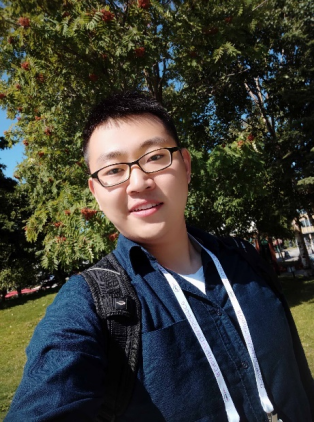
Haoyang Li is currently a postdoc researcher at Weill Cornell Medicine of Cornell University. He received his Ph.D. from the Department of Computer Science and Technology of Tsinghua University in 2023. He received his B.E. from the Department of Computer Science and Technology of Tsinghua University in 2018. His research interests are mainly in machine learning on graphs and out-of-distribution generalization. He has published high-quality papers in prestigious journals and conferences, e.g., IEEE TKDE, ACM TOIS, ICML, NeurIPS,
ICLR, ACM KDD, ACM Web Conference, AAAI, IJCAI, ACM Multimedia, IEEE ICDE, IEEE, ICDM, etc., winning one best paper award.
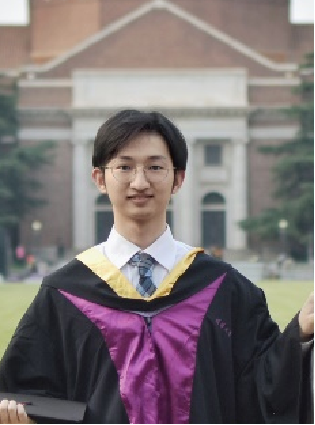
Zeyang Zhang received his B.E. from the Department of Computer Science and Technology, Tsinghua University in 2020. He is a Ph.D. candidate in the Department of Computer Science and Technology of Tsinghua University. His main research interests focus on automated machine learning, out-of-distribution generalization and large language models. He has published several papers in prestigious conferences, e.g., AAAI, NeurIPS, ICML, ACM KDD, etc.

Wenwu Zhu is currently a Professor in the Department of Computer Science and Technology at Tsinghua University, the Vice Dean of National Research Center for Information Science and Technology, and the Vice Director of Tsinghua Center for Big Data. Prior to his current post, he was a Senior Researcher and Research Manager at Microsoft Research Asia. He was the Chief Scientist and Director at Intel Research China from 2004 to 2008. He worked at Bell Labs New Jersey as Member of Technical Staff during 1996-1999. He received his Ph.D. degree from New York University in 1996.
His research interests include graph machine learning, curriculum learning, data-driven multimedia, big data. He has published over 400 referred papers, and is inventor of over 80 patents. He received ten Best Paper Awards, including ACM Multimedia 2012 and IEEE Transactions on Circuits and Systems for Video Technology in 2001 and 2019.
He serves as the EiC for IEEE Transactions on Circuits and Systems for Video Technology, the EiC for IEEE Transactions on Multimedia (2017-2019) and the Chair of the steering committee for IEEE Transactions on Multimedia (2020-2022). He serves as General Co-Chair for ACM Multimedia 2018 and ACM CIKM 2019. He is an AAAS Fellow, IEEE Fellow, ACM Fellow, SPIE Fellow, and a member of Academia Europaea.
TQ13: Curriculum Learning in the Era of Large Language Models
This tutorial focuses on curriculum learning (CL), an important topic in machine learning, which gains an increasing amount of attention in the research community. CL is a learning paradigm that enables machines to learn from easy data to hard data, imitating the meaningful procedure of human learning with curricula. As an easy-to-use plug-in, CL has demonstrated its power in improving the generalization capacity and convergence rate of various models in a wide range of scenarios such as computer vision, natural language processing, reinforcement learning, etc. Therefore, it is essential introducing CL to more scholars and researchers in this era of large language models (LLM), motivating the organization of our tutorial at AAAI 2025.
To give a comprehensive tutorial on CL, we plan to organize it from the following aspects: (1) theories, (2) approaches, (3) applications, (4) tools, and (5) future directions in the era of LLM.

Xin Wang (http://mn.cs.tsinghua.edu.cn/xinwang/) is currently an Associate Professor at the Department of Computer Science and Technology, Tsinghua University. He got both his Ph.D. and B.E degrees in Computer Science and Technology from Zhejiang University, China. He also holds a Ph.D. degree in Computing Science from Simon Fraser University, Canada. His research interests include multimedia intelligence, machine learning and its applications in multimedia big data analysis. He has published over 150 high-quality research papers in top journals and conferences including IEEE TPAMI, IEEE TKDE, ACM TOIS, ICML, NeurIPS, ACM KDD, ACM Web Conference, ACM SIGIR and ACM Multimedia etc., winning three best paper awards. He is the recipient of 2020 ACM China Rising Star Award, 2022 IEEE TCMC Rising Star Award and 2023 DAMO Academy Young Fellow

Hong Chen is currently a Ph.D. student at the Department of Computer Science and Technology, Tsinghua University. He received his B.E. degree from the Department of Electronic Engineering, Tsinghua University. His main research interests include machine learning, curriculum learning, auxiliary learning, and multi-modal generative AI. He has published high-quality research papers in ICML, NeurIPS, IEEE TPAMI, ACM KDD, WWW, ACM Multimedia, etc

Yuwei Zhou is currently a Ph.D. student at the Department of Computer Science and Technology, Tsinghua University. He received his B.E. degree from the Department of Computer Science and Technology, Tsinghua University. His main research interests include machine learning, curriculum learning, multimodal learning, and artificial intelligence generated content

Zirui Pan is currently a Ph.D. student at the Department of Computer Science and Technology, Tsinghua University. He received his B.E. degree from the Department of Computer Science and Technology, Tsinghua University. His main research interests include curriculum learning, disentangled representation learning, and multi-modal generative AI.

Wenwu Zhu is currently a Professor in the Department of Computer Science and Technology at Tsinghua University, the Vice Dean of National Research Center for Information Science and Technology, and the Vice Director of Tsinghua Center for Big Data. His Google Scholar page is https://scholar.google.com/citations?user=7t2jzpgAAAAJ. Prior to his current post, he was a Senior Researcher and Research Manager at Microsoft Research Asia. He was the Chief Scientist and Director at Intel Research China from 2004 to 2008. He worked at Bell Labs New Jersey as Member of Technical Staff during 1996-1999. He received his Ph.D. degree from New York University in 1996. His research interests include graph machine learning, curriculum learning, data-driven multimedia, big data. He has published over 400 referred papers, and is inventor of over 80 patents. He received ten Best Paper Awards, including ACM Multimedia 2012 and IEEE Transactions on Circuits and Systems for Video Technology in 2001 and 2019. He serves as the EiC for IEEE Transactions on Circuits and Systems for Video Technology, the EiC for IEEE Transactions on Multimedia (2017-2019) and the Chair of the steering committee for IEEE Transactions on Multimedia (2020-2022). He serves as General Co-Chair for ACM Multimedia 2018 and ACM CIKM 2019. He is an AAAS Fellow, IEEE Fellow, ACM Fellow, SPIE Fellow, and a member of Academia Europaea.
First, we introduce the motivations, theories, and insights behind CL. Second, we advocate novel, high-quality approaches, as well as innovative solutions to the challenging problems in CL. Then we present the applications of CL in various scenarios, followed by some relevant tools. In the end, we discuss open questions and the future direction in the era of LLM.
This tutorial will be highly accessible to the whole machine learning community, including researchers, scholars, engineers, and students with related backgrounds in computer vision, natural language processing, graph machine learning, large language models, etc., and it is self-contained and designed for introductory and intermediate audiences. No special prerequisite knowledge is required to attend this tutorial.
TQ14: Hypergraph Neural Networks: An In-Depth and Step-by-Step Guide
Higher-order interactions (HOIs) are ubiquitous in real-world networks, such as group discussions on online Q&A platforms, co-purchases of items in e-commerce, and collaborations of researchers. Investigation of deep learning for networks of HOIs, expressed as hypergraphs, has become an important agenda for the data mining and machine learning communities. As a result, hypergraph neural networks (HNNs) have emerged as a powerful tool for representation learning on hypergraphs. Given this emerging trend, we provide a first and timely tutorial dedicated to HNNs. We cover the (1) inputs, (2) message-passing schemes, (3) training strategies, (4) applications (e.g., recommender systems and time series analysis), and (5) open problems of HNNs.
This tutorial is intended for researchers and practitioners who are interested in representation learning for HOIs and its significant applications, including recommender systems, bioinformatics, time-series analysis, and computer vision. A preliminary understanding of graph representation learning would be beneficial.
The tutorial’s website is available at: https://sites.google.com/view/hnn-tutorial.

Sunwoo Kim is a Ph.D. student at Kim Jaechul Graduate School of AI, KAIST, South Korea.} He received his M.S. degree in artificial intelligence from KAIST in 2024 and B.A. degree in applied statistics from Yonsei University in 2022. His research interests include hypergraph representation learning and mining. His works have been published in major venues, including NeurIPS, ICML, ICLR, CVPR, and KDD. More information about Sunwoo can be found at https://sites.google.com/view/sunwoo97.

Soo Yong Lee is a Ph.D. student at Kim Jaechul Graduate School of AI, KAIST, South Korea. He received his M.S. degree in artificial intelligence from KAIST in 2023 and B.S. degree in psychology from UCSD in 2016. His research interests include (hyper)graph representation learning and mining. His works have been published in major venues, including NeurIPS, ICML, ICLR, and WWW. More information about Soo Yong can be found at https://github.com/syleeheal/.

Yue Gao is a Tenured Associate Professor at the School of Software, Tsinghua University, China. He received his Ph.D. from the Department of Automation at Tsinghua University in 2012. His research falls in the fields of AI, CV, and brain science. He has published 100+ papers in premier conferences and journals, including KDD, CVPR, and TPAMI. He also serves as an editorial board member/associate editor for the International Journal of Computer Vision and Medical Image Analysis. He is a Senior Member of IEEE and a Member of ACM. More information about Sunwoo can be found at https://www.thss.tsinghua.edu.cn/en/faculty/yuegao.

Alessia Antelmi is an Assistant Professor at the Department of Computer Science of the University of Turin, Italy.} She received her MSc and Ph.D. in Computer Science from the University of Salerno (Italy) in 2018 and 2022, respectively. In 2018, Alessia got a student travel grant to visit the Unit for Social Semantics, Data Science Institue (Galway, Ireland), led by Prof. John Breslin, and, in 2023, a research grant to join the NERDS research group at ITU to work on the COCOONS project led by Prof. Luca Maria Aiello. Her research primarily relates to exploiting hypergraphs to study the high-order relationships characterizing real-world phenomena, specifically focusing on online social influence diffusion and collective behavior. More information about Alessia can be found at https://alessant.github.io/.

Mirko Polato is an Assistant Professor at the Department of Computer Science of the University of Turin, Italy. Mirko Polato received his Ph.D. in Brain, Mind, and Computer Science from the University of Padova (Italy) in 2018. In 2017, Dr. Polato was a visiting Ph.D. student at the Delft University of Technology in the Multimedia Computing group. From 2018 to 2021, he was a post-doctoral fellow at the University of Padova, working on two H2020 projects. Since 2021, he has been an Assistant Professor at the University of Turin, and his main research topics include federated learning, interpretable machine learning, hypergraph representation learning, and recommender systems. He co-organized Special Sessions and Workshops on many top venues, including WWW and IJCNN. He served as a Program Committee member of several international conferences and as a referee for several international journals. He authored about 50 research products, including international peer-reviewed conferences and journal papers. More information about Mirko can be found at https://makgyver.github.io.

Kijung Shin is an Associate Professor jointly affiliated in the Kim Jaechul Graduate School of AI and the School of Electrical Engineering at KAIST, South Korea.} He received his Ph.D. in Computer Science from Carnegie Mellon University (USA) in 2019. His research interests span various topics on data mining and machine learning for (hyper)graph-structured data, with a focus on scalable algorithm design and empirical patterns in the real world. He has published more than 80 referred articles in major data mining, database, and machine learning venues. He won the best research paper award at KDD 2016 and the best student paper runner-up award at ICDM 2023. More information about Kijung can be found at https://kijungs.github.io.
TQ15: The Quest for A Science of Language Models
As large language models (LMs) continue to transform natural language processing and AI applications, they have become the backbone of AI-driven systems, consuming substantial economic and research resources while taking on roles that significantly influence society. The efficient, guaranteed, and reliable development of future language models demands the establishment of scientific analysis frameworks for language models. While extensive engineering insights and empirical observations have been accumulated, the immense resource costs of model development make blind explorations unsustainable. This necessitates scientific perspectives, guiding principles, and theoretical frameworks for studying language models. Though a systematic foundation for this emergent protoscience is yet to be fully constructed, preliminary studies already illuminate innovative adaptations of language models. This tutorial covers groundbreaking advancements and emerging insights in this new science. It aims to provide LM developers with guidelines for model development, provide interdisciplinary researchers with tools for creative application across domains, offer LM users predictive laws and guarantees of model behavior, and present the public with a deeper understanding of LMs.
The tutorial starts with the motivations for establishing a systematic science of language models (LMs), highlighting the need for guiding principles to overcome the rising costs and limitations of empirical approaches. Participants will explore the key challenges this field seeks to address, including predicting model behavior, interpreting internal mechanisms, optimizing training processes, and resolving issues like scaling inefficiencies and representation limitations. By integrating foundational components of this emerging discipline, the tutorial examines internal LM mechanisms, scaling behaviors, and theoretical frameworks, offers insights into the physiology of LM representations, and showcases how internal components process information alongside groundbreaking innovations. This comprehensive overview bridges practical applications with a deeper theoretical foundation, ultimately aiming to improve model transparency and reliability.
While a basic understanding of NLP and LM concepts (e.g., tokenization, embeddings, attention-mechanism, LM architectures) and a general AI research background are beneficial, this tutorial is designed to be accessible to all. We will provide high-level explanations to ensure that all participants, regardless of their expertise level, can engage and learn from this session.

Chi Han is a Ph.D. candidate in computer science at UIUC, advised by Prof. Heng Ji. His research focuses on understanding and adapting large language model (LLM) representations. He has first-authored papers in NeurIPS, ICLR, NAACL, and ACL, earning Outstanding Paper Awards at NAACL 2024 and ACL 2024.

Heng Ji, a Professor at UIUC and Amazon Scholar, directs the Amazon-Illinois Center on AI for Interactive Conversational Experiences. With expertise in NLP, multimedia multilingual information extraction, and knowledge-enhanced language models, she has earned numerous accolades, including IEEE’s “AI’s 10 to Watch,” NSF CAREER, and multiple Best Paper Awards.
TQ16: When Deep Learning Meets Polyhedral Theory: A Tutorial
This tutorial is aimed to show the strong connections between deep learning and polyhedral theory, which has applications in network verification, constraint learning, and neural architecture search. These connections are centered on piecewise linear activation functions, such as the Rectified Linear Unit (ReLU). While this form of activation is not as dominant as before, it is more amenable to integration with mathematical optimization solvers, and that makes it possible to work on significantly larger constraint learning models than if we were to use more general forms of activation functions. Still, this is a wide open and exciting area of research, since we need to develop algorithms that scale better with the size of the optimization problems and neural networks involved.
The target audience are researchers in either deep learning or discrete optimization, and the goal is to get them interested in exploring the intersection of these topics in new and creative ways. We will discuss the theory of linear regions, representability results in neural networks, and mathematical formulations based on mixed-integer linear programming and cutting plane algorithms. Understanding what geometrically happens in a neural network can help us make advances in machine learning as well as in optimization.
In particular, the theory of linear regions complements universal approximation results for neural networks. Namely, there is a limit to what functions can be well approximated when limited computational resources are translated into constraints on the depth and width of the layers of neural networks that can be used in practice. In the long run, that may also lead to a more principled approach for the choice of hyperparameters.
Prior knowledge of linear algebra is expected. It is helpful to have a sufficient background in either neural networks or mixed-integer linear programming, but not necessarily both.

Thiago Serra is an Assistant Professor at the University of Iowa. Previously, he worked at Bucknell University, Mitsubishi Electric Research Labs, and Petrobras. He has a Ph.D. in Operations Research from Carnegie Mellon University. His research at the intersection of discrete optimization and machine learning is supported by the NSF.
Half Day Lab
LH01: DAMAGeR: Deploying Automatic and Manual Approaches to GenAI Red-teaming
Over the past couple of years, GenAI models with billions of parameters have become readily available to the general public. In turn, a mixture of tangible results and hype has led to eagerness from the public to use GenAI in many different ways. At the same time, there are various concerns surrounding these models, leading to burgeoning efforts to document and classify their negative impacts. Red-teaming, which typically takes the form of interactive probing, is commonly used as part of these efforts. In order to most effectively uncover potential risks via red-teaming, we strongly believe that a participatory effort is paramount. In particular, with this lab, we seek to leverage the diverse set of skills and background experiences of AAAI conference attendees in order to discover GenAI failures. By providing attendees with varying familiarity with GenAI models and issues with an opportunity to actively red-team generative AI models, we hope to affirm the notion that effective red-teaming requires broad participation and effort. We are confident that our lab will encourage attendees to continue to provide invaluable feedback on the failure modes of these pervasive GenAI models.

Manish Nagireddy is a research software engineer at IBM Research and the MIT-IBM Watson AI Lab. He is currently interested in participatory evaluations of language models and uncertainty quantification for generative tasks. He also works on developing efficient and capable guardrail models for LLM interactions.

Michael Feffer is a Societal Computing PhD student at Carnegie Mellon University (CMU). He studies interactions between AI and society, including algorithmic fairness, participatory ML, and generative AI model evaluation. He aims to develop frameworks whereby everyday people impacted by ML models can influence model development.


Ioana Baldini is a Senior Research Scientist at IBM Research AI. She is the Tech Lead for social bias auditing and red-teaming of language models. She enjoys working in projects with multi-disciplinary teams that have potential for social impact.
Quarter Day Labs
LQ01: SOFAI Lab: A Hands-On Guide to Building Neurosymbolic Systems with Metacognitive Control
SOFAI (Slow and Fast AI) is a neurosymbolic architecture designed to integrate fast, experiential decision-making (System 1) with slow, deliberate reasoning (System 2), inspired by the “Thinking, Fast and Slow” cognitive theory. A key innovation of SOFAI is its metacognitive governance, which dynamically manages the decision-making process, enabling the system to switch between these two modes based on task complexity and resource constraints. This governance layer ensures optimal performance by determining when to rely on intuitive responses versus logical deliberation. This lab will offer participants hands-on experience in building neurosymbolic systems using SOFAI’s flexible architecture. Attendees will learn how to construct SOFAI instances for different problem domains, applying the principles of metacognitive governance to balance fast and slow decision-making modalities. By the end of the lab, participants will have developed a robust understanding of how to integrate neural and symbolic methods within a unified architecture, and how metacognitive governance can enhance AI systems by optimizing task-specific decision-making. This lab provides a unique opportunity to work with an architecture that generalizes across domains, setting a foundation for further advancements in neurosymbolic AI.
Upon completion of this lab, participants will:
- Gain a deep understanding of the SOFAI framework and its components, particularly its unique metacognitive governance layer.
- Acquire practical skills in constructing and deploying instances of SOFAI across illustrative domains, including planning tasks, constraint programming, and arithmetic problems.

Vishal Pallagani
Vishal is currently a Ph.D. candidate in Computer Science and Engineering at the University of South Carolina. Vishal’s research interests lie in the intersection of Natural Language Processing and Automated Planning.

Andrea Loreggia
Andrea Loreggia is an Assistant Professor at the University of Brescia in the Department of Information Engineering. His research interests in artificial intelligence span from knowledge representation to deep learning. His studies are dedicated to designing and providing tools for developing intelligent agents capable of representing and reasoning with preference and ethical-moral principles. He is a member of the UN/CEFACT group of experts, he actively participates in the dissemination and sustainable development of technology. He received his Master’s Degree cum laude from the University of Padova in 2012, and in 2016 he received his Ph.D. degree in Computer Science.

Francesco Fabiano
Francesco Fabiano is an affiliated researcher to the Computer Science Department at New Mexico State University and an Associate Researcher at the University of Oxford. Currently, he is mainly investigating the Computational Foundations of AI, with a particular focus on Understanding Decision Making. His other research interests lie in knowledge and belief representation, particularly in multi-agent domains, neuro-symbolic AI architectures for planning, epistemic reasoning, and computational logic.

Biplav Srivastava
Biplav Srivastava is a professor of computer science at the AI Institute at the University of South Carolina. Dr. Srivastava is interested in enabling people to make rational decisions despite real-world complexities of poor data, changing goals, and limited resources by augmenting their cognitive limitations with technology. He is exploring new approaches for goal-oriented, ethical, human-machine collaboration via natural interfaces using domain and user models, learning, and planning.

Francesca Rossi
Francesca Rossi is an IBM fellow and the IBM AI Ethics Global Leader. Her research interests focus on artificial intelligence, including constraint reasoning, preferences, multi-agent systems, computational social choice, and collective decision-making. She is also interested in ethical issues in the development and behavior of AI systems, particularly for decision support systems for group decision-making. She has published over 200 scientific articles in journals and conference proceedings, and as book chapters. She has co-authored a book and edited 17 volumes between conference proceedings, collections of contributions, special issues of journals, and a handbook.

Lior Horesh
Dr. Lior Horesh is a Principal Research Scientist and a Senior Manager of the Mathematics and Theoretical Computer Science group at the MIT-IBM Research Lab. His group’s mission is to approach some of AI’s big challenges from a principled mathematical angle. This involves conceiving and bringing in state-of-the-art mathematical theories, algorithms, and analysis tools to advance AI’s fundamental generalizability, scalability, and interpretability.
LQ02: Continual Learning on Graphs: Challenges, Solutions, and Opportunities
Most real-world graphs constantly grow or evolve with potential distribution shifts. Classical graph learning models, however, typically assume graphs to be static and face multiple challenges in the practical scenario. On the one hand, the models may catastrophically forget the previous knowledge due to the distribution shift. On the other hand, efficient model adaptation to new tasks also requires special consideration. Therefore, investigating how to constantly adapt a graph learning model to new distributions/tasks in the growing graphs without forgetting the previously learned knowledge, i.e. Continual Graph Learning (CGL), is becoming increasingly important in various real-world applications, e.g., social science, biomedical research, etc. Due to the existence of complex topological structures, CGL is essentially different from traditional graph learning or continual learning on independent data without topological connections (e.g., images). Challenges in CGL include the task configuration in different types of graphs, preservation of the previously learned topology, properly handling the concept drift caused by the topological connections, etc.
In this tutorial, we will introduce this newly emerging area – Continual Graph Learning (CGL). Specifically, we will (1) introduce different learning settings based on various application scenarios, (2) present the key challenges in CGL, (3) highlight the existing CGL techniques and benchmarks, and (4) discuss potential future directions, including the new possibilities brought by the recent advancement of Large Language Model (LLM) based graph models and pre-trained graph models.
The supplemental website is https://queuq.github.io/CGL_TUT_AAAI2025/
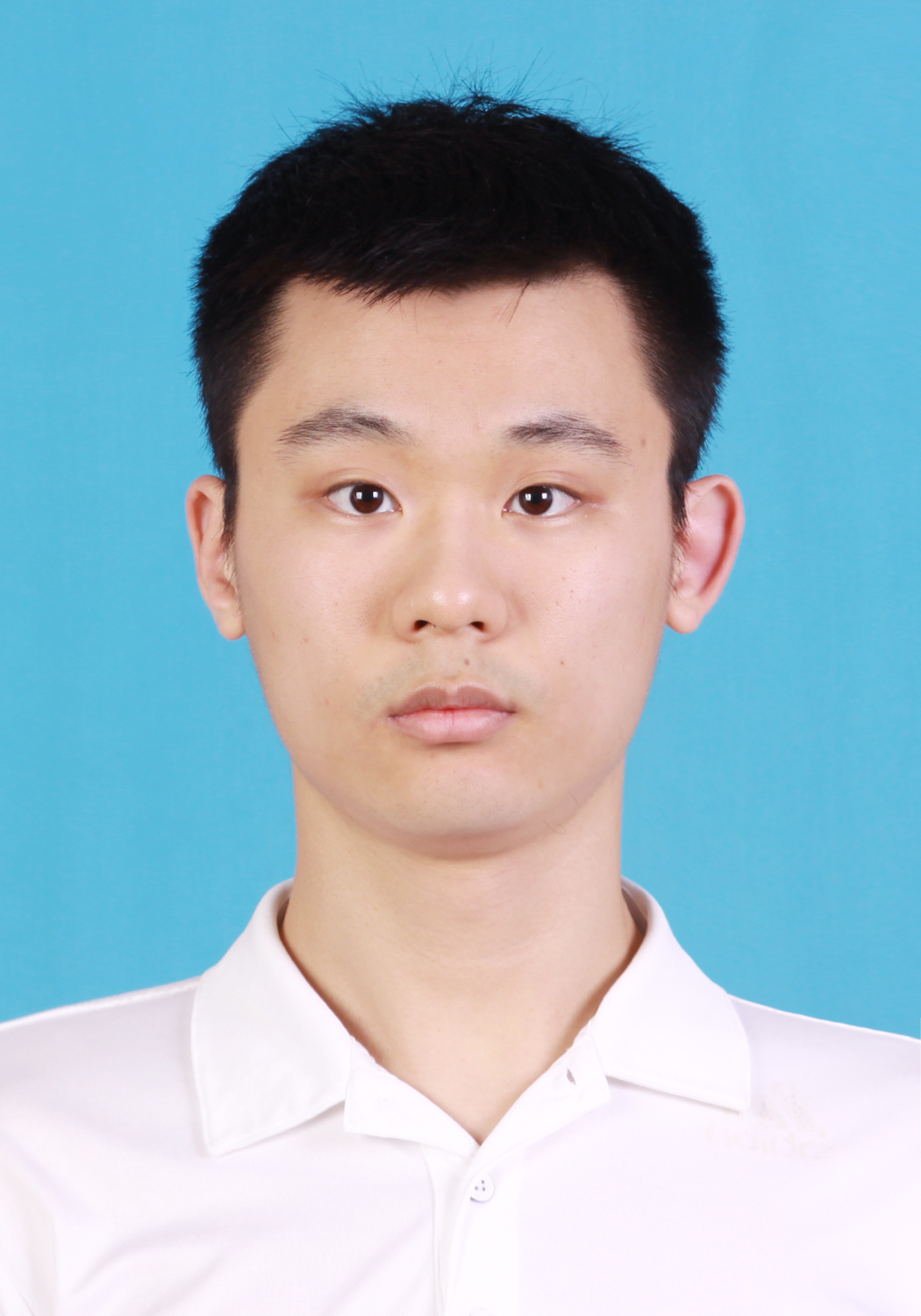
Xikun Zhang is a Presidential Postdoctoral Fellow in the College of Computing & Data Science at Nanyang Technological University. His research interests include applying deep learning to graph related problems, which is closely related to the topic of this tutorial. His works have been published in top conferences and journals.

Dongjin Song is an assistant professor in the Department of Computer Science and Engineering at the University of Connecticut. His research interests include machine learning, deep learning, data mining, and related applications for time series and graphs. His works have been published at top-tier data science and artificial intelligence conferences.

Dacheng Tao is a Distinguished University Professor in the College of Computing & Data Science at Nanyang Technological University. He mainly applies statistics and mathematics to artificial intelligence and data science. His research is detailed in one monograph and over 200 publications in prestigious journals and proceedings at prominent conferences.
LQ03: Developing explainable multimodal AI models with hands-on lab on the life-cycle of rare event prediction in manufacturing
In the age of Industry 4.0 and smart automation, unplanned downtime costs industries over
$50 billion annually. Even with preventive maintenance, industries like automotive lose more than $2 million per hour due to downtime caused by unexpected or “rare” events. The extreme rarity of these events makes their detection and prediction a significant challenge for AI practitioners. Factors such as the lack of high-quality data, methodological gaps in the literature, and limited practical experience with multimodal data exacerbate the difficulty of rare event detection and prediction. This lab will provide hands-on experience to learn how to address these challenges by exploring the entire lifecycle of rare event analysis, from data generation and preprocessing to model development and evaluation. Developing a process ontology for user-level/application-level/domain-specific explanations will also be demonstrated. Participants will be introduced to the limited publicly available datasets and, will gain hands-on experience with a newly developed multi-modal dataset designed explicitly for rare event prediction. Through several hands-on sessions, participants will learn how to generate such a high-quality dataset and the practical use of this dataset to develop rare event prediction models. Those interested in developing AI models involving diverse multimodal data for other applications will also benefit from participation. The learning from this lab will also be relevant to other domains and applications, such as healthcare, finance, and energy, where predictive maintenance can help prevent costly failures in complex systems. Participants will gain valuable insights and skills transferrable across industries where rare events impact operational efficiency and require advanced predictive techniques.
The lab is structured to ensure participants comprehensively understand the topics. This lab welcomes participants eager to explore the advanced techniques of rare event and anomaly prediction in manufacturing environments. While a basic understanding of AI, machine learning concepts, and programming in Python is recommended, the lab is designed to accommodate a wide range of expertise levels. Participants with foundational knowledge in these areas will benefit from a smoother learning experience. Still, the lab content is structured to ensure that all attendees can actively engage in hands-on exercises and build practical skills, regardless of their prior background.
To ensure an optimal learning experience during the lab, participants should bring a laptop with Python 3 installed. Familiarity with basic terminal operations is also recommended, as it will facilitate smoother interaction with the tools and platforms used throughout the lab. The organizers will provide all necessary software requirements and dependencies to ensure participants can concentrate on the hands-on exercises and core content without being distracted by setup issues. The lab will primarily utilize the following tools and platforms:
- Python 3 for programming and machine learning model implementation.
- Google Colab provides a cloud-based environment to run Python codes and easily access high-performance GPUs for computationally intensive tasks.
- PyTorch or TensorFlow for deep learning tasks.
- Jupyter Notebooks for interactive coding.
- Scikit-learn for basic machine learning models.
- Pandas and NumPy for data manipulation.
- Data visualization tools like Matplotlib or Seaborn.
Website: https://aiisc.ai/aaai25/AAAI-Lab-Rare-Event-Prediction/

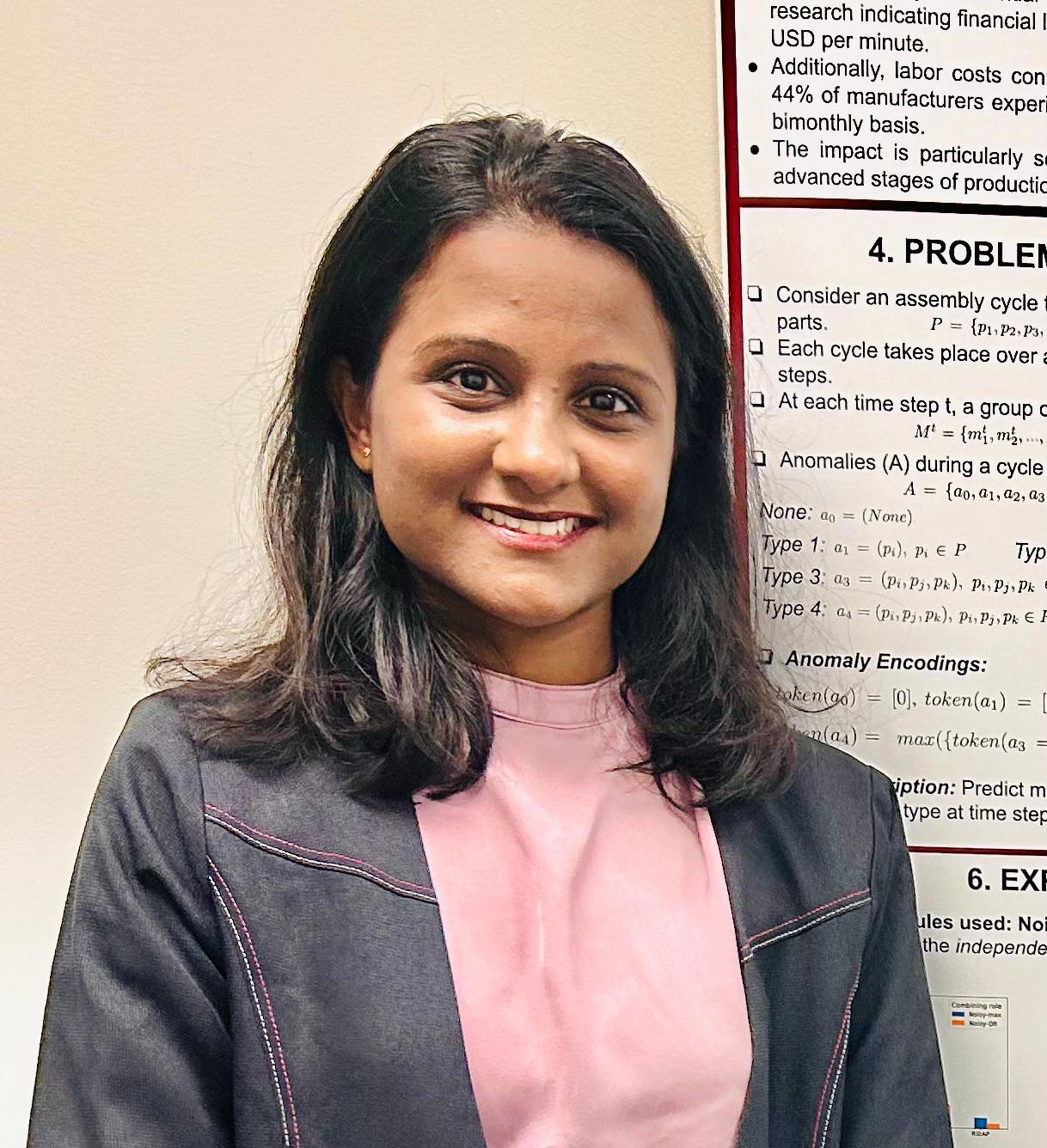
Chathurangi Shyalika is a Ph.D. student at the AI Institute, University of South Carolina. Her research interests include Deep Learning, Multimodal-AI, Time Series Analysis, and Neurosymbolic-AI. She is interested in real-world problems like rare-event prediction, anomaly detection, and event understanding in various domains. Contact: jayakodc@email.sc.edu


Ruwan Wickramarachchi is a Ph.D. candidate at the AI Institute, University of South Carolina. His research focuses on introducing expressive knowledge representation and knowledge-infused learning to improve machine perception and context understanding in autonomous systems. He has co-organized several tutorials at the U.S. Semantic Technologies Symposium, ACM Hypertext, ISWC, and IEEE BigData. Contact: ruwan@email.sc.edu

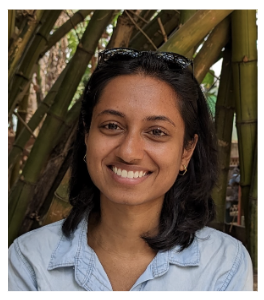
Revathy Venkataramanan is a PhD Candidate at AI Institute, University of South Carolina, and a research intern at HPE Labs. Her research uses a neurosymbolic approach to build explainable AI models through multi-contextual grounding, reasoning, and traceability. She has co-organized workshops at AAAI and tutorial at IEEE BigData.
Contact: revathy@email.sc.edu


Dr. Dhaval Patel is with IBM Research since 2016 and currently works as a Senior Technical Staff Member. He is an expert in Data Mining, Machine Learning, Time Series Data Analysis, etc. He is a key contributor to Flagship IBM Research products, including AutoAI-TS, Maximo Application Suites for Anomaly Detection at Scale, etc. Contact: pateldha@us.ibm.com


Prof. Amit Sheth (Home Page, LinkedIn) is an Educator, Researcher, and Entrepreneur. His research includes neuro-symbolic AI, emphasizing trustworthy, explainable, and safe AI. He is a fellow of the IEEE, AAAI, AAAS, ACM, and AAIA. He founded three AI companies licensing his university research. Contact: amit@sc.edu
LQ04: Financial Inclusion through AI-Powered Document Understanding
Financial inclusion remains a critical global challenge, with complex financial documents often serving as a significant barrier to accessing and understanding financial services. While recent advances in Large Language Models (LLMs) have shown promising capabilities in document understanding, summarization, and financial education, implementing these solutions presents various challenges. These include handling diverse data formats, designing effective prompts, ensuring accuracy in simplified responses, and adapting explanations for different user backgrounds. Additionally, there’s a growing need for solutions that can democratize financial knowledge and empower individuals to make informed financial decisions, particularly among underserved populations.
This hands-on tutorial addresses these challenges by presenting a comprehensive framework for AI-driven financial document understanding. Participants will learn to develop solutions using Retrieval-Augmented Generation (RAG) and knowledge graphs, implemented via an open-source tech stack including Phidata, Weaviate, and Llama3.1. The tutorial is structured to provide both theoretical foundations and extensive practical implementation experience. Key topics include document summarization techniques, concept simplification strategies, and methods for creating personalized explanations tailored to users’ backgrounds. Through hands-on demonstrations, participants will build use cases for financial document comprehension, develop educational tools, and gain insights into creating human-interactable platforms for deploying these methods effectively. The session combines presentations with guided coding exercises and interactive building sessions, ensuring participants gain practical experience with implementing these solutions.
This tutorial is designed for a diverse audience, including financial institutions aiming to serve underserved populations, fintech professionals developing innovative products, policymakers focused on inclusion initiatives, and AI researchers working on document understanding. By bridging the gap between complex financial documents and user comprehension, participants will gain practical skills to enhance financial inclusion through AI-powered solutions. The tutorial emphasizes accessible, open-source solutions to ensure participants can continue developing and implementing these tools after the session. Participants should have basic Python programming knowledge and bring a laptop with internet connectivity; all necessary resources and code will be provided prior to the conference. Through this comprehensive training, attendees will be equipped to contribute to the broader goal of enhancing financial inclusion through innovative AI-powered solutions.


Jayeeta Putatunda is a Lead Data Scientist, Director – AI CoE at Fitch Group, specialising in NLP and Gen AI. Her focus is on custom SLMs and advanced RAG pipelines. Jayeeta is also the NYC Chapter Lead for Women in AI and was named a 2024 Generative AI Leader by AIM.


Anant Gupta is a Senior AI Researcher in the Bloomberg AI group. He focuses on improving financial document search and understanding products using GenAI. Anant also leads the ML/NLP Guild at Bloomberg.

